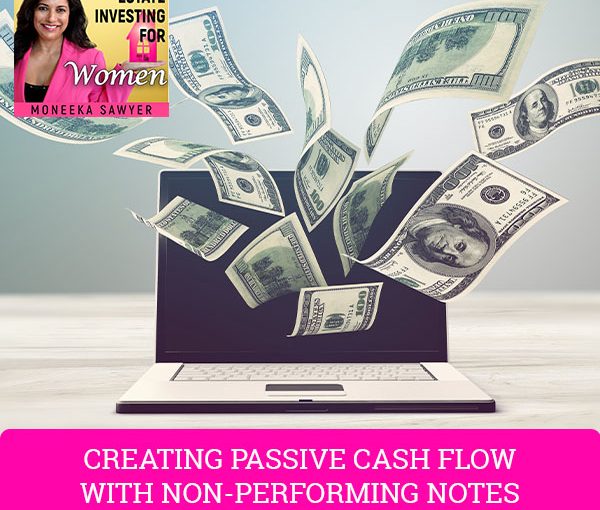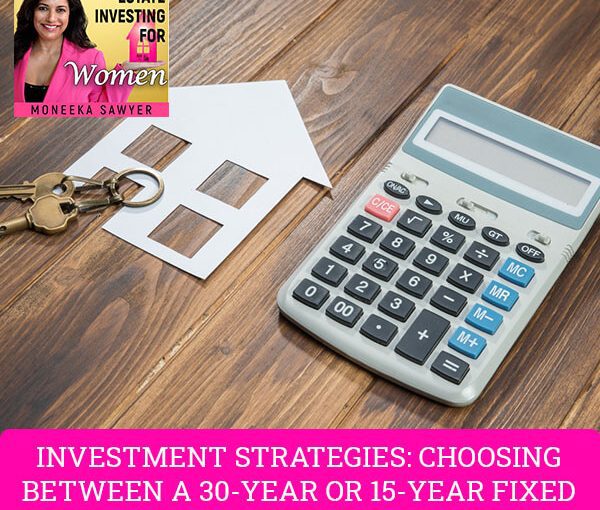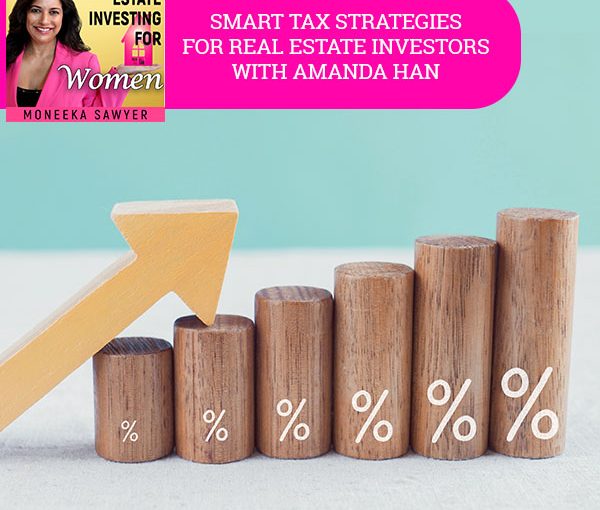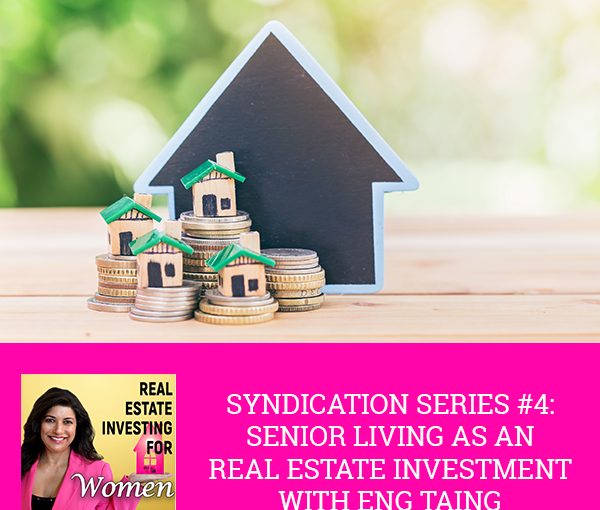Become the Bank for Passive Real Estate Income – Buy Notes
Moneeka Sawyer is often described as one of the most blissful people you will ever meet. She has been investing in Real Estate for over 20 years, so has been through all the different cycles of the market. Still, she has turned $10,000 into over $5,000,000, working only 5-10 hours per MONTH with very little stress.
While building her multi-million dollar business, she has traveled to over 55 countries, dances every single day, supports causes that are important to her, and spends lots of time with her husband of over 20 years.
She is the international best-selling author of the multiple award-winning books “Choose Bliss: The Power and Practice of Joy and Contentment” and “Real Estate Investing for Women: Expert Conversations to Increase Wealth and Happiness the Blissful Way.”
Moneeka has been featured on stages including Carnegie Hall and Nasdaq, radio, podcasts such as Achieve Your Goals with Hal Elrod, and TV stations including ABC, CBS, FOX, and the CW, impacting over 150 million people.
Creating Passive Cash Flow With Non-Performing Notes With Paige Panzarello – Real Estate Women
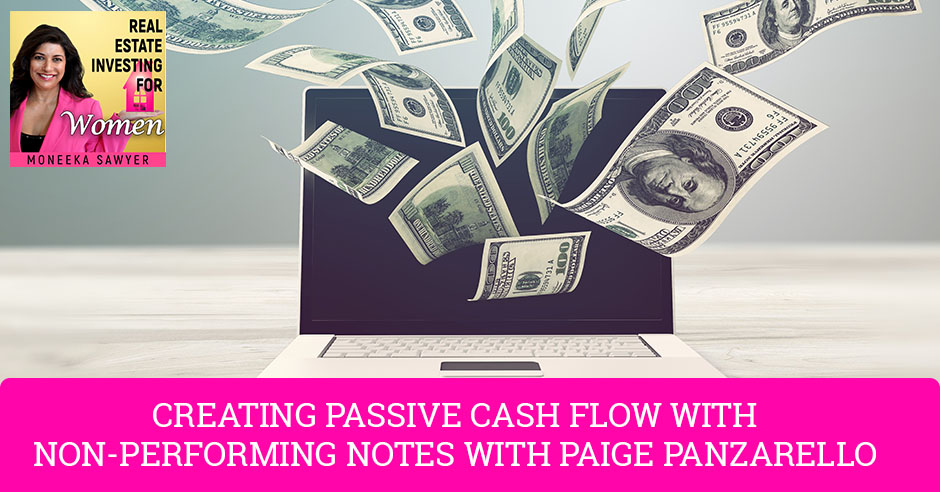
Can you imagine what it’s like $20 million dollars just when you’re starting to perform well in real estate? Paige Panzarello went through this ordeal in 2007, and it almost ended her real estate career. But now she’s bouncing back and she’s doing well with passive cash flow. And she’s doing it with non-performing notes! Listen to this episode as Paige tells it all to Moneeka Sawyer.
—
Watch the episode here
Listen to the podcast here
Creating Passive Cash Flow With Non-Performing Notes With Paige Panzarello – Real Estate Women
Real Estate Investing For Women
I am so excited to welcome to our show, Paige Panzarello. Having been a real estate investor and entrepreneur for many years, Paige has experienced many facets of real estate investing. Her experience includes founding and running her own residential and commercial construction and acquisition company.
She does buy and hold residential and commercial real estate investing, tax deeds and liens investing, and fix and flip residential remodeling and other forms, to name a few. She focuses on non-performing notes that she purchases all across the United States. Whether in residential or commercial real estate in California, Arizona or nationwide, Paige has been successful in completing over $150 million in real estate transactions to date. Welcome to the show, Paige. How are you?
Thank you so much for having me on. I’m so excited to be here.
Let’s start with your story. Tell us where you have been.
I have been a real estate investor for many years. I started my real estate investing career a little differently than most people. I literally was thrown into the deep end of the pool by virtue of inheritance. I knew nothing about real estate investing or real estate, much less investing. My grandmother passed away.
She had a rather sizable estate, half of which was in California and half of which was in Arizona. Off I went at a very young age to Arizona, knowing nothing about real estate or real estate investing. We had 38 townhome units that were only about 40% occupied. We had a sewer treatment plant and some land. I knew nothing about anything. Unfortunately, the estate was about $4 million in debt.
I was thrown into the deep end of the pool and learned quickly that all I had to do was ask questions and surround myself with people that had the answers. I was good at that and doing what I said I was going to do. If I said I was going to do something and asked the people that we owed money, I asked them to work with me, and they did. The flip side is that I was able to do what I said I was going to do. I quickly built a reputation, a good one, which was paramount.
I was able in three years to turn the properties around. We brought it back into the black in about three years. We were in a boutique market in Arizona, and I realized that we weren’t going to be able to sustain profitability. I went to my family and said, “I want to build on the land, sell the units and the sewer treatment plant.” They were all for selling the sewer treatment plant, by the way. I wanted to leverage that and go into building the land.
My family said, “I don’t want any part of that.” I said, “I want to buy the company, which I did.” I started to develop the land and hired a contractor. I realized very quickly that he was going to bankrupt me before I was even coming out of the ground. I fired him and found somebody else that would be my qualifying party. I started a construction company knowing nothing about construction. I set the pace to put us on the fast track. We were rocking and rolling. In three years’ time, we had 36 employees. We held all our licenses except HVAC and roofing.
The reason that we didn’t have those is that the insurance was way too high. We were building our own projects, everybody else’s projects, and it was great. Except that, even at that young age, I was exhausted and working myself 18 hours a day, 7 days a week, into an early grave. I was making money hand over fist. I had a lot of assets and liquidity. I thought I was having a good time, and 2007 happened.
Even if you know nothing about real estate, you can still pursue a business within the industry. Share on XThe funny thing is I saw it coming but I was naive in the fact that I thought, “This is not going to happen to me because I’m only leveraged about 10%.” I was wrong. It happened right on top of my head. Everybody that owed me money, their funding froze up. I was in the unique position that I did not have to go through bankruptcy to discharge the debts that I owed. I sold off everything that I owned. I had liquidity and cash. It took me about three years but I paid everybody off. I had a fire sale, everything. At the end of the day, I lost $20 million.
I walked away with my head held high, which was important to me. I still have investors that I work with now because of that. I wanted to make everybody else hold. That was important to me. I walked away from real estate investing for a little while, but I came back like everybody else. I had to rebuild. I didn’t have the money to put it together but I did have a good brain for real estate. I love it. I have a passion for it and a passion for helping people. I went the same route that everybody goes, wholesaling, fixing, and flipping. Some buy and hold as you grow, tax liens, and tax deeds.
I was also looking into and studying non-performing notes. About a year after I started studying it, I bought my first one. Angels sang for me. When you lose $20 million, that has a tendency to shape you as an investor. I know all of my risk tolerance. I know exactly where I’m going. When I landed in the note space, I was ecstatic because it has everything I possibly want as an investor. I never looked back.
Tell me a little bit about notes.
Notes basically are your promise to pay. There’s a variety of different kinds of notes that you can buy. I focus on the first position, meaning I’m the first one to get paid. First position non-performing notes that are secured by residential real estate. You can buy notes that are against cars. You can buy notes that are credit card debt. All those things are promises to pay.
When you finance anything, that’s your promise to pay. That’s a note. I focus on the non-performing space as opposed to the performing space. The performing space is the borrower paying their monthly payment. The non-performing space is where the borrower has stopped paying their monthly payments. My notes again are secured by residential real estate.
Why would you do non-performing?
I get that a lot, “Why on Earth would you buy a non-performing note when someone stopped paying?” The answer is there’s a variety of different reasons but the biggest one is that we would get a big discount. When you buy something at a steep discount, you build in a cushion of equity. That gives you power and control where you can mitigate your risk. After 2007, I was all about power, control, and mitigating risk.

Passive Cash Flow: Ask questions and surround yourself with people who have the answers.
As an investor, can you make money with non-performing notes? How does that work?
When we buy a non-performing note, there is a face value of the note. The Unpaid Principal Balance is also called the UPB. Let’s say that’s $100,000, but the market value of the property is only $80,000. That note is underwater. Those borrowers are underwater. When I buy a note, I buy it based on the current market value of the securing collateral, also known as the house. It’s $80,000, and I will buy it at a deep discount from there. It used to be we were able to buy notes anywhere between 40% and 50%, sometimes even a little less. Now it’s hovering around 55% to 60%, still quite a nice size equity cushion.
For that same $80,000 house, I’m spending $45,000 for the note. They will buy and build in a huge equity cushion. The borrower still owes me $100,000 because the unpaid principal balance is $100,000. I have a lot of flexibility and maneuverability to work with that borrower to either get them to reperform and start paying on their mortgage or sometimes our borrowers will give us what’s called a deed in lieu of foreclosure. They don’t want the house anymore but don’t want the foreclosure on their record.
They will deed us the property as payment in full. I can turn around and sell that house for $80,000 because that’s the market value of the property. That’s how I make money as a note investor in buying non-performing notes. The best part, though, is if we get it to reperform, not only am I generating chunks of cash. I’m also generating streams of monthly cashflow. I’m creating two different avenues of money coming into my pocket in the same vehicle, which is tremendous as far as I’m concerned.
Tell me a little bit more about that. How does that work?
In terms of the reperformance or the exit strategies because we have 23 different exit strategies in note investing. Remember, I’m risk-averse. With 23 different exit strategies that are avail, we are able to mitigate that risk. Were you asking about the reperforming situation and how we generate chunks and streams of cash?
Yes.
Getting a borrower to reperform is my favorite exit strategy that we use. It happens about a third of the time. We generally only use four main exit strategies but we still have 23 at our avail. Everybody knows about foreclosure. That’s one of our exit strategies. Sometimes, we have two. Short sale, everybody knows what a short sale is. It’s $100,000, and the borrower comes to us and says, “I have somebody that’s willing to buy it for $80,000. Will you accept it?” How fast do you think I’m going to say yes?
When you say something you need to do, just do it. Share on XDeed in lieu of foreclosure, I’ve already explained. The reperforming situation is my favorite. The borrower comes to us through our loss mitigation team. This is something I understand that I have a team in place. I have direct contact with our borrowers because I’ve got a very big heart, and everybody has got a story. I am not a licensed debt collector. The team that I pay is licensed, debt collectors.
They know all the CFPB rules and regulations. It’s well worth the small fee that I pay them per asset, per month, to deal directly with our borrowers. They are the liaison. Through our team, we talk with our borrowers and let us know that they want to stay. Let’s say that the same unpaid principal balance is $100,000, the house is only worth $80,000, and they haven’t paid for 2 or 3 years.
We get a lot of these that haven’t paid 2, 3, 4, even sometimes longer. They now owe us another $20,000 between arrearage, and maybe we have fronted some property taxes, so we don’t lose our collateral that’s securing our invested dollars. Let’s say the total amount due, the total legal balance is $120,000 but the house is only worth $80,000. There’s $40,000 on the hole.
They say they want to stay, had a medical condition, whatever, but now, they can pay. We are in a position where we can go to that borrower, and eventually, we do this through what’s called a forbearance agreement. We don’t do a permanent loan modification immediately. The borrower hasn’t paid for a while. They have to have a little skin in the game.
We will say to them, “We are going to require a reinstatement fee.” It’s usually somewhere around $2,500 to $5,000, depending. Believe me, when people want to stay in their homes, they figure out a way to come up with that money. There’s that chunk of cash. We will say to them, “We will put on hold the $40,000 that is underwater.”
We will do the forbearance agreement and a trial payment plan. You pay your reinstatement fee. We can do so many different things. We can lower interest rates and payments. We can create a new amortization schedule. We can stretch out their payments and make their payments lower. We can forgive some of the principal balance.
We will work out a payment plan that works for that borrower that works for us in terms of our numbers as well. If they pay for the first 4 to 6 months on time, every time, we will take half of that $40,000 and forgive it. If they pay on time, every time for the next 4 to 6 months, we will forgive the other half. At that point, we will put a permanent modification in place at $80,000, which is the market value of the property.
It is a more manageable mortgage for our borrower, at $80,000. We’ve created a chunk of cash at the beginning of this whole process. We’ve monthly cashflowed every single month. There are your streams of cash. At the end of the twelve months, we have a decision to make because we now have what’s called a season’s note.

Passive Cash Flow: When you buy something at a steep discount, you build in a cushion of equity and that gives you power and control where you can mitigate your risk.
There are plenty of note investors that are out there that like the performing notes because they like the monthly cashflow but they don’t want to be a landlord. They don’t want the tenants and toilets. They are willing to buy that performing seasoned note from us. We slightly discount it to another note investor. They are willing to buy that close to close to par, which is close to the $80,000. We will discount it a little bit and give them an equity cushion. You can see how that’s very profitable or we can hold onto it and keep cashflowing it. We do choose to do that as well.
That’s one of your exit strategies. I can totally see that you have a big heart. You want people to be able to keep their homes, and I feel the same way. It’s beautiful.
Especially after the 2007 crash, I have had life happen to me, and sometimes I have to take off my heart hat and put on my hard hat, and that’s never fun to do. My goal is to set out to help people. I’m in a position, by becoming the bank as a note investor, to do that for those that qualify, and not everybody qualifies but that’s a big thing for me.
You told us a little bit about your exit strategy, why don’t you walk us through the steps of acquiring a non-performing note?
Acquiring a non-performing note is very similar to any other type of real estate investing. There are two things that everybody looks for in real estate investing. One is deals, and the other is money. Note investing is no different. It’s about your network and networking. I like to think of investing as a more gentle form of real estate investing.
There is competition but it’s not nearly as fierce as the fix and flip market. You need to network. As everybody knows, your net worth is determined by your network. You need to get out there, start asking questions, start talking to people, go to REIA meetings, join BiggerPockets, and listen to podcasts. All those things are important to get you into the note space.
The interesting thing about the note space is at the asset managers. I used that word as an all-encompassing word. These are the people that handle portfolios for a variety of different sources, banks, hedge funds, other note investors, smaller commercial banks, community banks, credit unions, etc. The asset manager is the one that handles the portfolio and the disposition of the assets. Asset managers in the note space it’s very collaborative.
As you develop your relationship and your reputation with these asset managers, they will introduce you to other asset managers, which blew me away the first time that that happened to me. I thought, “Why on Earth would he do that?” You would think that there would be a lot more competition but there isn’t. That’s great too. If you do what you say you are going to do in the note space, and by the way, that is paramount, please do not waste these asset managers’ time. They do not like it, and you won’t get any more products. As long as you develop that relationship, they will help to catapult you to the next level.
You have to put action behind the desire. That's how you start. Share on XThat’s true with everybody, do what you say you are going to do. It’s also interesting how we don’t do what we say we are going to do for ourselves. There’s one thing about doing what you say you are going to do for other people but what about for yourself too? Part of building a blissful wealth empire is keeping your commitments to yourself, making yourself a priority and your promises a priority to yourself and others.
That’s such a hard thing for entrepreneurs because, as entrepreneurs, we put everybody else in front of us all the time, and it’s almost like we feel guilty if we take a spa day.
There are other ways. Yes, in the take care of yourself. That’s very important. The other thing is I’m committed to learning about real estate, and these are the steps that I’m going to take. Instead of putting off those steps, it’s to keep those promises. “Now I’m going to research notes or I’m going to send to this person to further that business.” Much of the timepieces of this can be intimidating.
It can be scary. They can feel overwhelming. Instead of keeping our promises, we procrastinate. That slowly chips away at our self-confidence. On all levels, whether it’s for your business, yourself or your family, keep your promises to yourself and the people around you. Tell me, what is the most rewarding part of investing in notes?
I get to create win-win situations for everybody. If I can help a borrower reperform and stay in their home, that is the most rewarding. We have had situations where we have had families and single moms that have a couple of kids that are going through a divorce. The big banks didn’t care. We came in and were able to help keep that family, that single mom, and her kids and their home. That is fulfilling and rewarding to me, more so than any amount of money. Having gone through and had life happen to me is the most rewarding part for me all day long.
Haven’t you loved hearing Paige talk about her notes investing strategy? Do you want to learn more from her? You can learn how to create real wealth with real estate-backed non-performing notes from June 10th to 12th. In Paige’s three-day, hands-on, interactive, virtual, and packed with information event, you will learn how to get started investing in notes so you can grow your nest egg, achieve your goals faster, retire early with peace of mind, create chunks of cash and streams of monthly cashflow. The options are endless, and you will be helping people stay in their homes.
Ladies in the green room before the show, Paige mentioned that this is the only event she’s offering this year. Don’t miss it. Otherwise, you will have to wait a long time to get this opportunity again. Take action now, so you can take advantage of this market. The opportunities in notes are staggering. See what all the buzz is about and reserve your seat now at BlissfulInvestor.com/notes. The virtual live event is from June 10th to 12th. Are you ready for three rapid-fire questions?
I am.

Passive Cash Flow: Just as long as you stand in integrity and you behave that way, people will be understanding because life does happen. Mistakes are made but don’t lie to people and don’t try and pull the wool over their eyes, just stand in your integrity, own up to it.
Tell us one super tip on getting started in real estate investing?
Take action. You can educate yourself to the cows come home but if you have analysis paralysis, you are never going to go anywhere. You got to put action behind the desire. That’s how you start.
What is one strategy for being successful in real estate investing?
This is a big one. To be successful, you have got to make the deal conform to you and who you are as an investor, not the other way around, do not ever conform to a deal. You set the guidelines, the outline, the bullet points, and what is your good risk tolerance and make the deal conform to you, do not conform to the deal.
What is one daily practice that you do that you would say contributes to your personal success?
I have integrity. We are all human. We all make mistakes. I don’t ever try and pull the wool over somebody’s eyes. If I make a mistake, I own up to it. People know when you are dealing with people and teams, money and emotions, there’s a big swirling around of all of that. As long as you stand in integrity and you behave that way, people will be understanding because life does happen. Mistakes are made, but don’t lie to people and don’t try and pull the wool over their eyes. Stand in your integrity, and own up to it. Believe me, and you will have more forgiveness and a better, stronger relationship if you behave that way. That’s how I conduct not only my business but my life.
Thank you so much for all of your words of wisdom for my audience. This show has been amazing.
Thank you for having me. I enjoyed it.
Don’t miss Paige’s upcoming three-day virtual live event from June 10th to 12th. It will be a long time before she’s going to be doing this again. Don’t miss it. Sign up now at BlissfulInvestor.com/notes. Thank you so much for joining Paige and me for this show. I look forward to seeing you next time. Until then, remember, goals without action are just streams. Get out there, take action and create the life your heart most deeply desires.
Important Links
About Paige Panzarello
 Paige Panzarello is the “Cashflow Chick”. Having been a Real Estate investor and entrepreneur for almost 25 years, Paige has experienced many facets of real estate investing. Her experience includes founding and running her own Residential and Commercial Construction and Acquisition companies, Buy and Hold residential and commercial real estate investing, Tax Deeds/Liens Investing, Fix and Flip (Residential Remodeling), and other forms to name a few. She currently focuses on Non-Performing Notes that she purchases all across the United States. Whether in notes, residential or commercial real estate, in California, Arizona, or nationwide, Paige has been successful in completing over $150 million in real estate transactions to date.
Paige Panzarello is the “Cashflow Chick”. Having been a Real Estate investor and entrepreneur for almost 25 years, Paige has experienced many facets of real estate investing. Her experience includes founding and running her own Residential and Commercial Construction and Acquisition companies, Buy and Hold residential and commercial real estate investing, Tax Deeds/Liens Investing, Fix and Flip (Residential Remodeling), and other forms to name a few. She currently focuses on Non-Performing Notes that she purchases all across the United States. Whether in notes, residential or commercial real estate, in California, Arizona, or nationwide, Paige has been successful in completing over $150 million in real estate transactions to date.
She has been a regularly featured guest on “The Cashflow Guys” podcast, and you can also find her on the “Best Ever Show” with Joe Fairless, “The Note Closers Show”, “Cashflow Ninja”, “Secrets to Real Estate Investing” and “Real Estate Investor Goddesses” podcasts, among many others. Paige has also been interviewed and highlighted in an article in the Wall Street Journal. She also speaks at various different Real Estate Investing clubs and conferences across the country.
Paige has been purchasing Non-Performing Notes (NPNs) since 2014, and she formed The Tryllion Group, which invests in Notes across the country.
Paige teaches the “Building Wealth with Notes” Workshop that drills down into the details of how to buy Non-Performing Notes, what to look for, due diligence to perform, and most importantly, how to mitigate risk. Her 10-week Master Class is a hands-on deep dive where Paige walks you through the nitty-gritty details to be a successful Note buyer.
Having experienced the hardship of the economic downturn of 2007, and what she calls “a very difficult learning experience”, Paige knows first-hand how “life can happen” to everyone. Her company was founded to help people in distress. Paige is also driven to help educate people on the importance of passive income, deal evaluation, money and debt management. She wants everyone to elevate their situation and become free of dependence on anyone or anything, so that when “life happens”, people will be ready, not broken.
Whether it is improving communities one house at a time, helping borrowers stay in their homes, or working with other investors to learn a new way to potentially earn higher returns for their investment dollars toward money cash flow or their retirement years, Paige is dedicated to helping people improve their lives in every way. She lives by the motto, “People first, profit second.”
______________________________________
To listen to the EXTRA portion of this show go to RealEstateInvestingForWomenExtra.com
To see this program in video:
Search on Roku for Real Estate Investing 4 Women or go to this link: https://blissfulinvestor.com/biroku
On YouTube go to Real Estate Investing for Women
Moneeka Sawyer is often described as one of the most blissful people you will ever meet. She has been investing in Real Estate for over 20 years, so has been through all the different cycles of the market. Still, she has turned $10,000 into over $5,000,000, working only 5-10 hours per MONTH with very little stress.
While building her multi-million dollar business, she has traveled to over 55 countries, dances every single day, supports causes that are important to her, and spends lots of time with her husband of over 20 years.
She is the international best-selling author of the multiple award-winning books “Choose Bliss: The Power and Practice of Joy and Contentment” and “Real Estate Investing for Women: Expert Conversations to Increase Wealth and Happiness the Blissful Way.”
Moneeka has been featured on stages including Carnegie Hall and Nasdaq, radio, podcasts such as Achieve Your Goals with Hal Elrod, and TV stations including ABC, CBS, FOX, and the CW, impacting over 150 million people.
Investment Strategies: Choosing Between A 30-Year Or 15-Year Fixed Mortgage With Jen Du Plessis – Real Estate Women
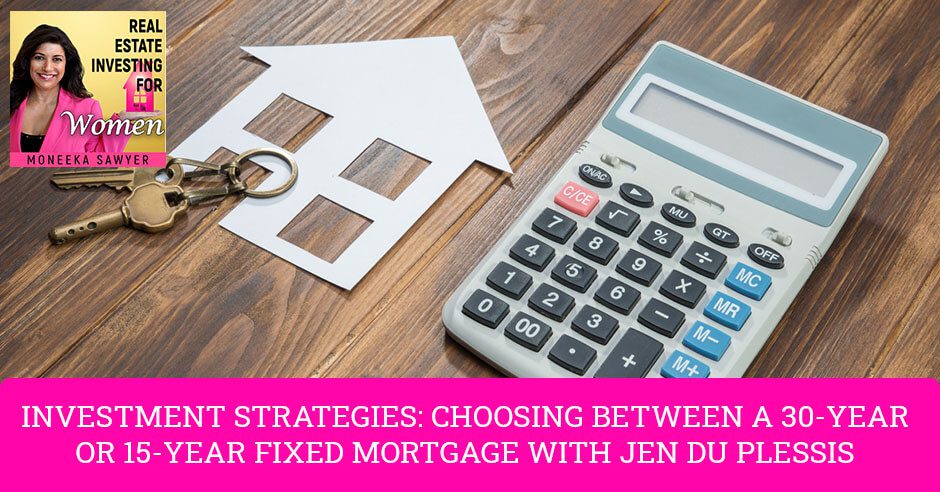
People always ask our guest Jen Du Plessis, whether to decide on a 30 year-fixed or a 15-year fixed mortgage. In this episode, she shares in-depth insights on what to choose and expect. She explains that the factors in your decision should always include analyzing the market opportunities and your life goals. There is no right way for everyone since people have different situations. Listen as Jen discusses the various factors affecting the rates of your investments, mortgages, and business. She also shares critical success strategies to help scale your real estate business. Tune in to know your assets and loans and make the right decisions.
—
Watch the episode here
Listen to the podcast here
Investment Strategies: Choosing Between A 30-Year Or 15-Year Fixed Mortgage With Jen Du Plessis
Real Estate Investing For Women
I am so excited to welcome back to the show, my friend, Jen Du Plessis. She is known as America’s lifestyle mastery mentor. People most attracted to her are high achieving professionals and entrepreneurs who are missing something. Through her mastermind, she helps people increase their awareness of what’s possible and to multiply the results in record time while having the courage to say yes to their personal lives.
She is the CEO and founder of numerous companies. She is from Northern Virginia and attended Colorado State University where she studied Architectural Design and Construction Engineering. She has been married to her high school sweetheart, has two children and three grandchildren. She has been in the financial services industry for many years and was listed in the Top 200 of Nationally Ranked Mortgage Originators and funded over $1 billion in mortgage loans. She is an eight-time #1 Amazon Best-selling Author, host of two top podcasts and a TV show host.
She is an expert in living a life of luxury, priority and time management, business relationships, business scaling, sales management and a certified mastermind facilitator. She is a charismatic speaker. She’s been sharing stages with icons such as Tony Robbins, Les Brown, Darren Hardy, Jeff Hoffman, Sharon Lechter, and many more. She believes that entrepreneurs can live their legacy while building it and it’s time to start living a life of luxury every single day.
—
Jen, welcome back to the show.
It’s so painful to listen to all that. Every time I get introduced, it’s what happens. You have to do it.
It’s so funny because we were in the green room chatting away and I was like, “I’ve got your bio.” She’s like, “No, I’m updated.” It’s so funny because I updated mine too.
We grow. That’s what happens. You have to add stuff.
That’s what we are doing. That’s what we’re supposed to do. We’re supposed to grow. I love that. Thank you. The last time you came on the show, we talked about mortgages and some of that stuff. I want to talk about specifically the 30-year versus the 15-year. I get questions on this all the time about, “Which one should I invest in because the rate is lower? Which one should I get when I do my refinance or purchase because one has a lower rate, but the other one has a lower payment?” I know what I say and my audience knows what I say, but I want to hear what you have to say about that because you’ve been in the industry about that.
When I was originating, I got asked that question all the time and it was funny because people don’t believe that you can customize a 30 or 15-year fixed-rate loan or 20, or 25. I used to have clients call me and say, “What’s your rate,” which is the wrong question to ask. I would say, “What have you been quoted on a 30-year?” They would tell me. I’d say, “Did they tell you about the Super Saver 25?” They’re like, “No.” “All that is a 25-year term. There’s nothing different, but you are a customizing.”
Even the difference between a 30 and a 25, if you look at how the loan pays off, you look on a graph, it’ll pay off sooner, not as much as a 15. There would be a smaller line, but depending on the person’s life goals or the goals that they have, that can be a good strategy for you. If you’re going to be in the house for a shorter period of time because, at any point in time, you have a lesser balance if you want to accelerate that.
The answer to your question is it depends. I used to reply it depends and bring them and go, “What do you think the answer is?” Everybody goes, “It depends.” There is no one strategy that’s good and I don’t think anyone should put their mindset to, “I only do 30-year. I only do-15.” Your life events, the market and the opportunity costs are all going to play a role in the decision that you make on it.
We wanted more return on our money and better ways to invest.
Before we move deeper because I do want to find out about this customizing, I was a mortgage broker for years. I didn’t know about that. I’m excited to hear more about that. The other question is, “What is the rate?” You said, “That’s the wrong question to ask.” What’s the right question to ask?
It’s interesting because the rate is an important factor and this gets down to the customization. I’ll take you back to The Great Recession that we had in 2008. At that time what gave them the momentum for that was that we had all been waiting for some market churn. At the churn of the century, we were all into the dot-coms and leveraging dot-coms and stuff because we wanted more return on our money and we wanted better ways to invest.
What ended up happening is because of dot-com, our eyes were opened and aware of what was happening in investing and in the marketplace and as consumers, all of us, we were hating to open up our 401(k)s every quarter and we’re like, “It’s going to be painful.” I don’t want to go too detailed but into the trenches of the secondary market and everything, loans are sold in pools. On conforming conventional loans or whatever that may be in your area, the standard cookie-cutter conventional loan, if more people are buying that, the pool is larger. It’s like taking all your groceries in at one time. It’s less energy versus 1, 1, 1.
If you have this big pool and you’re selling the big pool and you called the lender and said, “I want 30 or 45 days, 60-day lock.” We’re committing to delivering however many loans are in that pool by that date, otherwise, there are penalties. There’s one loan. It’s going to be more expensive to deliver than if there are 1,000 loans in that. The lender banks on the fact that they’re going to have a plethora of loans in a bigger pool and therefore, the cost of delivery is going to be lower.
You have to know this in order to understand. Back then what happened was, we said, “If you’ve got this big pool of clear water. You can drop one little drop of Coca-Cola in there or coffee and it wouldn’t impact the whole thing.” We as consumers said, “Let’s mix up our investing or mutual funds and stuff like that. Let’s mix them up a little bit and let’s drop even more of this color in.” What ended up happening is it turned color. It got bad because now we had more non-performing and difficult loans into these pools that we thought we would get good returns. We were all living high on the hub because we were like, “Look at this,” as it came in.
What people have to understand is that the rate is very important. I get it. I had been selling a negatively amortizing loan way back in the ’80s and ’90s for nine years. Best performing loan in the marketplace and lowest turnover because no one would refinance because the rate was always better than the market but we got all these brokers who came in and said, “I want that product to. I need to have a mix.” The start rate was one in a quarter.
They didn’t tell you about all the implications that it’s negatively amortizing. The best rate in the world could be a financial disaster. You don’t want to shop for a rate. You want to shop for the terms that fit your financial situation and your life events at that particular moment. It isn’t that there’s a better question. It’s not the only question. A lot of people lead with that and it’s important, but every lender is within an eighth and a quarter, sometimes 3/8 to each other. There are more than 365 lenders in the world and you’re never going to find the best rate every day because it’s all shifting around.
If you call at noon and the market tanks and you’ll call someone at 4:00, then they’re going to have a higher rate than the one you talked to, but when you call them back, they’re going to have the higher rate and vice versa. It’s not about the rate. It’s about who can deliver what your financial goals are or who can help you dissect the DNA. This is why you want to customize it. When I say customizing a 30, 15, 20, 25-year loan, it’s, “Do you want to put 5%, 3% or 0%?” There are different rate options. There are seventeen different things that can affect the interest rate. That’s the customization of interest rate.
When you call and go, “What’s your rate?” “My rate anywhere from 2% to 8%. What’s your deal? What are your terms?” As we talked about on the last show, I do a lot of situational lending. It’s called non-conforming. People will say, “Yeah, but the rates are high.” It’s not that high anymore. There’s not a big spread, but I go, “I understand that the rate is high, however, your situation isn’t fitting into the conforming. You need to understand that.” It’s not about the rate. It’s about who can get you across the finish line with the best terms for your financial situation at that moment.
I was also in the mortgage industry when the NegAms were the biggest thing. There were a lot of people that got killed by the NegAm or they thought they got killed by the NegAm, but the problem is it was because they weren’t educated. I love that you were like, “You need to understand the terms that my rate was 1.25%, but at that rate, it’s negatively amortizing.” Those NegAms all had a rate where you were not negatively amortized. They pay that. There were four options.
When you’re looking at that, all of my clients that did the NegAm, equity were going crazy here in the Bay Area. A NegAm made sense, but then as the market turned, they started to pay so that now they were paying their minimum in order to not NegAm so that they could wait for the properties to recover because we also took a huge dive as far as equity. Instead of getting called on those loans, they adjusted their payment. What happened with a lot of people is they ended up getting called on those loans because they didn’t understand that they could make a different payment.

Investment Strategies: There is no one strategy that’s good because your life events, market, opportunity costs are all going to play a role in the decision that you make on it.
That’s a consumer issue because we lack the financial education to understand how those work, but it’s more in the hands of the lender. You go to Bob and wherever Bob works and he manages your assets. It’s Bob’s job to call you and say, “That stock we were in, it’s going down.” We all experience this. We don’t get a call from Bob. We find out when we get our statement. “Why didn’t you call me, Bob?” The same thing happens with your CPA. They go, “You owe $30,000 in taxes.” You’re like, “If you had told me at month six to make some adjustments, I would have made adjustments.” This is a huge failure in the financial services industry and it includes lenders.
I don’t care if you’re in a 30-year fixed rate or if you’re on a NegAm loan, we need to be able to manage and help guide clients. That’s what I coach on for loan officers is having those mortgages under management. I used to say, “If you’ve been orphaned by your last lender, I’d like to adopt your loan.” They all left at the end of 2008. It’s dropping off like flies and these people were crying. They had negative equity and not because of NegAms loans, but because of other things. They didn’t know who to turn to. I said, “I’ll adopt your mortgage. I’ll be the Bob who helps you go through this.”
We had emotional refinances on 30-year fixed-rate loans, which is interesting because you had said, that adjustment, you could make the minimum payment, the interest-only, the 30-year and the 15-year payment. The people go for the low payment. It’s like your credit cards. Why do you go for the low payment? You know if pay more, it’ll pay off. If you don’t, you’re meeting the interest. That’s it and not even all of it.
If you do the minimum payment, it’s NegAm.
It’s the same exact thing. The only difference is it’s not on an appreciating asset. Be thankful that you have that on your mortgage. We did an emotional refinance on a 30-year fixed because people would say, “I’m not going to make any payments.” I go, “Hold on.” I had a guy call me once and he said, “For the last several years, I’ve been making an extra $100 payment on my mortgage.” He was not my client until I had this phone call.
He said, “All that adds up $1,200 a year times seven years.” Wouldn’t the lender give me that credit and allow me not to make the payment now, since I lost my job? “No. If you had put that $100 in the bank, you could draw from it and make your payment while you’re looking for a job, then you could refinance, but now you haven’t made your payment and you don’t have a job. I can’t help you.”
These are the discussions. It was so funny because I had a little bottle of pink Pepto-Bismol, a box of tissues, a bottle of wine, and I said, “Pick your poison because this is going to be a painful conversation.” If I could do an emotional refinance to help them strategize on how they’re going to get out of it if the market isn’t going to give it to them, that’s huge. On 30 and 15-year mortgages, it doesn’t matter. The customization is, “Do you want to put 5% or 20%? Do you know when you put 20% down, your rates are higher than if you put 19.99% down?”
I did not know that.
People don’t see it. They’re all going to put 20% down. I don’t want that private mortgage insurance. That would give you a lower interest rate. You have to ask these questions. You have to figure them out. One of my specialties was investors. With investors, people would come to me and say, “I want a 30-year fixed because I want the lowest payment.” They want cashflow. The problem is as investors, we’re doing the same thing.
When we make that transition from an owner-occupied homeowner to an investor, you have to take the emotion out of it. It’s about the numbers. When we go to a 30-year fixed-rate loan, while you may have the cashflow, you’re also not paying down the balance on your loan. We’re only looking at cashflow. We’re going to buy for cashflow or appreciation. It amazes me. I would tell people, I’d run these numbers all the time, “What if we did a fifteen-year and an investment?”
People are like, “I got my cashflow.” I remember running one of these negative cashflows. It was $275 a month. He said, “That’s not why I’m buying the property.” I said, “You’re buying the property for appreciation, so we’re going to go for negative cashflow.” “I can’t pay $275 negative cashflow on an appreciating asset that gives me a tax deduction, but I can pay $700 on a car.” While you have a job, this is a strategy. This is why I say it’s all customized. If you didn’t have a job and you were solely relying on that income, then we would put you in a 30-year, so you have the cashflow.
It’s not about the rate; it’s about who can deliver what your financial goals are.
While you have a job and you can afford $275 negative cashflow, let’s accelerate the payoff and let’s use these first two properties as jumping things to your next property. In that same five-year timeframe that you would own the house, one, when you’ll sell it and have had cashflow. The other, you will sell it and have more equity to take those two properties and go buy that one property and go buy two. Now, we’ll put you in the 30-year. That’s called step investing and people don’t see that.
It’s how Brian and I were able to exponentially increase our portfolios because we would take one, hold it, sell it and buy two. The next one we would buy normal and the next one we would buy fifteen-year term, hold it, sell it and buy two more. That’s why for the investor side of things, there’s a great difference between a 30, 15 or a 20, whatever you know is comfortable, but we jump into these crazy 30-year terms because we think it’s the safety, but we’re not going to have the loan that long anyway.
That’s true because most of us refinance.
That’s a NegAm loan. Every time you refinance, you rob yourself of equity because you roll the closing costs in. It’s not about the rate. It’s about the strategy you need to be looking for and how long you think you’re going to have the house and the loan.
What you guys do is you get a house, you take a fifteen-year loan, pay it down, you sell it and then with that equity now or whatever you get from that, you use that and you buy two. The next one you buy on a fifteen and those two, you finance on a 30 because you’re going to hold them longer. You buy another on a 30.
The two houses that I bought, one will be on a 30 and one would be on a 15. That fifteen, I will sell in five years and buy two more.
To explain what happens when you’re amortizing loans on a 30-year, in the first ten years, it’s basically all interest. You get this great write-off but you’re not paying down your principal at all.
You’re at 21 when the streams cross.
Those first ten years are all interests. When you’re in a fifteen-year, you’re paying down more principle, which is why her equity is growing. You’re paying it down. Your equity is growing because the property or asset is appreciating. You’re also paying down the principal. When do those lines cross on a fifteen?
It’s at year nine.
It’s a lot sooner. That’s why she’s doing it that way. She’s got one that she’s holding, one that she’s paying down so that she’s building equity so that she can buy another piece of property.
Instead of trying to save 20% down every single time for investors. At the time, I was doing 10% down for investors because that’s what you could do. That was to my benefit too, but again, this is why your lender is so important to you and why, “What’s your rate,” doesn’t work. Whether it’s owner-occupied and an investor that doesn’t work. You have to talk about the strategy.

Investment Strategies: It’s not about the rate; it’s about who can get you across the finish line with the best terms for your financial situation at that moment.
I call it the EHE strategy. “What’s your Entrance, Holding, and Exit strategy for everything?” We know as investors, we’re always going to have an entrance, holding and exit strategy, but we don’t think about that on owner-occupied. That’s important given what the long haul looks like. It’s not enough to find a good low rate.
You and I had talked about it too is the rate on a 15-year is lower than on a 30 because the investors can’t predict 30 years out. It might be a good loan. They don’t want those low-interest-rate loans on their books. Especially now, with inflation, everybody who refi’d in 2021, they don’t want those loans on their books. They want to get them out because they’re not making as much money as the inflation side. With new loans, they are, but you get a lower interest rate on a fifteen-year loan. More of your payment goes to the principal than to interest on a fifteen loan, so it pays off more. Less of the payment goes to interest on a 30-year loan.
If you’re going to commit to a fifteen-year loan, you’re committing to that loan. You and I talked about this in the green room. It’s better sometimes to get a 30-year loan and pay it as a fifteen anytime you want because no loans have prepayment penalties. You can pay at any time you want. Annually or monthly, it doesn’t matter. I would say, “Put your money someplace else and make lump-sum payments if that’s what you want,” because there’s no obligation to pay it.
What is your equity growing at? You can’t cut a piece of your drywall and walk into the bank and say, “I’d like some more of my equity back.” That doesn’t happen. I’d rather retain my equity in the form of cash in my bank account, but there are opportunity costs too. You’re paying more and accelerating the principal reduction for whatever reason you have. I would challenge people, “Why do you want to own your house free and clear? Is it because you don’t have any tax benefits?” Even in my house now, I have a little over $750,000 of equity sitting in my house and it’s killing me.
It’s because it’s dead money.
It’s sitting there and I hate it because we were going to move, but my husband had a medical thing and now we can’t. We got to sit here, but it drives me crazy. There’s no benefit whatsoever to having all that equity in there, but you could reduce the equity if the interest is lower. If you took a 30-year fixed rate and the interest is higher, you have a lesser payment, you could divert that money that you would have paid on the fifteen to something else.
You could divert it to paying off debt, non-preferred high-interest rate debt that’s not tax-deductible. You could divert it to funding your child’s student loans or education. You could do what you and I do. We get capital and then we seek around and try to find another place to invest our money. That’s opportunity costs. If you get a fifteen-year loan, because you want equity, you’re missing out on opportunities to be able to create other cashflows passive income.
Think about the Delta about that. What right now is the rate of a fifteen-year?
I don’t know what the rate of a fifteen-year because I’m not in the market anymore, but I’d say it’s probably 3.25% or something like that.
Your Delta is 3.25%. You’re paying 3.25% more so you have cash available to you so you can make another investment.
To get a 30% return.
As investors, we’re always going to have an entrance folding and exit strategy.
Even if you get an 8% return, is it worth it to you to use that cash to make 4%, 5%, 10%, 50%, 30% or whatever? It gives you the flexibility that we went through COVID. How many people were like, “I can’t afford my mortgage.” If you’re on a fifteen-year and your payment is higher, you have to pay that higher payment. If you’ve got a lower payment because you’ve got a 30-year, you only pay that 30-year payment. When times are flushed, you’re welcome to pay down that 30-year if you want to.
You can put it in a bank or invest it over.
That’s why I recommend always to get a 30-year because it gives you so much more cash flexibility because I’ve seen 2001, 2008, 2019, 2020 and 2021 come. We’ve suffered financially and it’s a bit of a security blanket not for rate, but for payment.
It’s always about the payment. What we were talking about in the green room is there are life events that happen to all of us. During COVID, people got divorced, passed away, or got married. There are life events that depict whether you should be doing a 30 or 15. Whether you should pay points or not. whether you should roll in your closing costs or not or you should escrow or not. All of those seventeen different factors have to be looked at every single time and not because they need to be looked at to get you the lowest rate. You want the lowest rate, I get that. I want it to, but the lowest rate for your terms for the things that you want.
For example, people don’t realize that it costs extra money at closing to waive escrows. People don’t understand that. The reason you don’t understand that is because if you don’t pay your taxes on your own, you don’t pay them. They become the first position and the lender could lose the entire principal balance of your mortgage if you don’t pay your taxes and it gets turned over to someone like me who buys tax liens. I’ll buy a tax lien for $5,000 and I get a $300,000, $400,000 house free and clear because the first mortgage is beneath that. It’s more of a risk on the lender side that you’re going to be capable of striking that check in a timely fashion to not hurt their equity or collateral.
That’s why they want to EMP out.
All of this depicts what your circumstances are. Don’t lead with rate, get the whole gamut.
Go to somebody who understands. This is why we talk about this all the time. When you’re going to a lender, you want someone who understands investing because the conversation is different for investing than it is for a primary residence. It’s significantly different because the package is different. The goals are different. How long are you going to hold that loan is different? There are a lot of different things. Those are the basic things and things we don’t even know to ask or we do know to ask, but there’s a lot that we don’t know what to ask. Your lender will help you through that.
Even if it’s owner-occupied, you need to be taking this strategy and this outlook. You don’t want order takers. You don’t want to call Quicken Loans because they’re not going to do anything to help you. They’re order takers and are there to give you the lowest rate. If you go on Quicken or Rocket Pro go and immediately, they’re on you like, “Do you want to talk?”
You see a great rate. If you scroll all the way down, you’ll find out that you have to put 25% down and it costs three points to get it. If you have a $100,000 loan, that’s $3,000. If you have a $300,000 loan, that’s $9,000 to buy that rate, which may be your strategy, but most people don’t have 25% down and three points on an owner-occupied.
Could you tell me a little bit about doing a 20-year or 25-year loan? I know that they’re out there. I don’t know how to get them and I was a mortgage broker.

Investment Strategies: It’s not about the rate. It’s about the strategy you need to be looking for and how long you think you’re going to have the house and the loan.
All you have to do is ask because there’s pricing available for 20, 25, and 30-year loans. Fifteen and below is going to be one price or the same price. Anything above that is going to fit into the category of a 30-year fixed-rate loan and there might be a slight advantage. It’s a little yin and yang that goes on because like a 30-year with 20% down would be X price. A 25 would probably be the same price, but if you put another five down, you might get a better price and then it depends on the day or market.
All of this adjust moment by moment, all day long as stocks are trading. This is exactly what is happening with the market. If you have a phone call with someone at 10:00 in the morning, that’s yesterday’s rate. If you have a call with someone at 11:30 or 12:00, that’s this day’s rates as they were released and good luck the rest of the day because they could be adjusting all day long. This is why you’re never going to find the best rate in the market. You’re going to have to find what works for you.
We were talking about you sell the loans in buckets to Fannie and Freddie or whatever. When you’re trying to get a specialized or customized loan at 25 or 20 years, doesn’t that take it out of the bucket?
No, it’s still sold in the 30-year pool. It’s still the same strategy.
It’s amortized differently.
What makes it different is that it’s the loan amounts. It is not the points you paid or whatever. They’re sold based on the loan amounts. This is interesting because it’s a question that I ask the loan officers and realtors all the time and you wouldn’t believe how many can’t answer the question. This is scary. As consumers, you want to be able to answer it. “Why is the interest rate higher on a $1 million loan than it is on a $400,000 loan?” What do you think the answer is? We’ll put you on the spot. Not because you were a lender or anything. This is what consumers do is risk and it’s not. That is not the right answer.
For example, a $400,000 loan has someone who’s putting 5% down is squeaking by with credit, is squeaking by with qualifying ratios. It is getting a gift. He probably has some job changing and hopping. He has high debt. We’re using all their money. Maybe they’re even getting a 401(k) or all of that. That’s less risky than someone who puts down 35% on a $1.2 million home.
My husband and I have this conversation all the time. We can afford a $1 million loan. Why are we getting hassled when someone who can’t afford the $200,000 loan is not? I get what you’re talking about.
The reason is the pool. There are fewer people buying that high of things. The pool is always smaller. The price across the sale of the pool is higher. It’s not a risk at all.
That’s so fascinating. Thank you for that. I love that. Now, we know.
That’s why when you go to a bank and they have a portfolio loan, they have something that says, “We can do something unique and different as a portfolio.” It’s a higher price because it’s not even sold in a pool. They’re taking on the risk on its whole. They’re shelving the loan and they’re not selling it. That’s why when we get to situational lending, this non-QM or non-qualified mortgage, non-standard Fannie, Freddie, FHA and VA. We start getting into non-QM, the rates are a little bit higher because you’re asking them to take on a riskier situation.
Every day is a choice. You can choose to be successful.
A situation where they can’t sell it in the secondary market or now, we can. We can sell in the secondary market, but again, the pools are smaller because fewer people are coming into that. I call it situational lending, which is the name of my mortgage company, Situational Lending because your situation depicts what the price is.
Tell everybody how they can reach you.
The best way is you can go to JenDuPlessis.com and send me a message or something and I’ll be happy to respond to you. You can text Make Your Mark to 26786 so you can get some preliminary information about what I’m doing. I hold very high-end masterminds that are for people who are highly successful and are missing something in their lives. What I’m here to do is guide you in that facet, mortgages and on business. I don’t coach anybody. It’s a mastermind. We have some personal breakthroughs too. It includes a high-end retreat. I believe that mindset plus mechanics creates momentum. You can’t have one and create momentum. You have to have both.
You can text 26786. The thing you’re going to text is Make Your Mark. It will go through even though it’s not a normal phone number. It’s all set up that way. What are we going to be talking about in EXTRA? We’re going to be talking about priority management. This is one of the things that Jen does better than anybody else. She runs all these companies.
She still has time for vacations, spend time with her husband and her grandkids, and all the things that she loves to do, but she also runs all these businesses. She does a good job of priority management. I want her to share some of her magic and wisdom around that. We’re going to do that in EXTRA, so stay tuned for that. Before we move into EXTRA, here are three rapid-fire questions. Tell us one super tip on getting started investing in real estate.
Get educated. Go talk to several lenders and find out who has, what specialty, where, everybody has a niche and expertise. Make sure that you go to the person who has. Don’t go to your buddy, grandma, sister or grandchild. Go and talk about what their expertise is in any type of investing.
What is one strategy for being a successful real estate investor?
Sometimes we assume things. We get contracts in and we go, “I’ve seen that contract.” Don’t. Look deep into those. I would say that strategy is to get yourself comfortable with looking at contracts and looking at terms, etc. Ask some title companies or escrow companies around you if you could look at investor contracts. They can mark out all the people and all that good stuff just so you get a feel of what it looks like because that first one that comes in is scary.
You feel so much more confident making offers and doing deals if you’ve got some depth of knowledge inside of you that you can count on. It gives you more confidence.
Even with me when dealing with our Buyers Club, the first time I got the contract in I was like, “This is foreign to me.” I’m not going to make assumptions that they know what they’re doing so I’m going to challenge everything on there to make sure that I clearly understand.

Investment Strategies: Get yourself comfortable with looking at contracts and looking at terms. Ask some title companies around you.
What would you say is one daily practice that you do that contributes to your personal success?
For lack of a better word, get your head on straight. Get a checkup from the neck up every morning. Meditation, prayer and all those good habits that you have in the morning. Every day is a choice. You can choose to be successful or you can choose to let the day slip by. I choose to be successful and the only way to do that is to reformat myself every day. Recalibrate every single day.
This has been phenomenal. Thank you so much for everything you’ve offered on the show, Jen.
Thank you so much. I sure appreciate it. I always love talking to you, Moneeka.
Thank you for joining Jen and I for this portion of the show. We do have more so stay tuned for EXTRA. We’re going to be talking about priority management. If you would like to subscribe to EXTRA, go to RealEstateInvestingForWomenEXTRA.com. The first seven days are for free. Go check it out. For those of you that are leaving Jen and I now, thank you so much for joining us. I appreciate you. I look forward to seeing you next time and until then remember, goals without action are dreams. Get out there, take action and create a life your heart deeply desires.
About Jen Du Plessis

Jen Du Plessis, America’s Mortgage Mastery Mentor helps mortgage loan officers and real estate agents who are overwhelmed, stressed out, and sabotaging their personal lives for the sake of their business to multiply results in record time and have the courage to say yes to their personal lives (which sometimes means saying no to clients).
During fifteen of her 37-year career in the mortgage industry, Jen has been listed in the top 1% of loan officers nationwide; spending 3 years in the top 200 of nationally ranked originators, and has funded over $1 Billion in mortgage loans. She is recognized as an Influencer in her industry as the best-selling author of LAUNCH-How to Take Your Business to New Heights, top podcast host of Mortgage Lending Mastery, and highly sought out and charismatic speaker; speaking on stages with such icons as Darren Hardy, Tony Robbins, and Les Brown.
Today Jen is passionate about empowering mortgage loan officers to achieve professional and personal breakthroughs so that they stop the daily chaos by identifying their priorities to gain calm to take back control of their business and life. She is guiding her coaching students to attract clients rather than chasing them. And lastly, she is devoted to helping each student’s business grow exponentially rather than hitting the reset button to have the same results year-after-year.
She has been seen and heard on Good Morning America, Sirius/XM Radio, Voice America, and Mortgage News Network. Jen has been featured in publications such as The Wall Street Journal and The Washington Post; is a regular contributor to Mortgage Executive Magazine and Mortgage Women Magazine and has been recognized with the Women with Vision Award as one of the Top Women in the Mortgage Industry.
______________________________________
To listen to the EXTRA portion of this show go to RealEstateInvestingForWomenExtra.com
To see this program in video:
Search on Roku for Real Estate Investing 4 Women or go to this link: https://blissfulinvestor.com/biroku
On YouTube go to Real Estate Investing for Women
Moneeka Sawyer is often described as one of the most blissful people you will ever meet. She has been investing in Real Estate for over 20 years, so has been through all the different cycles of the market. Still, she has turned $10,000 into over $5,000,000, working only 5-10 hours per MONTH with very little stress.
While building her multi-million dollar business, she has traveled to over 55 countries, dances every single day, supports causes that are important to her, and spends lots of time with her husband of over 20 years.
She is the international best-selling author of the multiple award-winning books “Choose Bliss: The Power and Practice of Joy and Contentment” and “Real Estate Investing for Women: Expert Conversations to Increase Wealth and Happiness the Blissful Way.”
Moneeka has been featured on stages including Carnegie Hall and Nasdaq, radio, podcasts such as Achieve Your Goals with Hal Elrod, and TV stations including ABC, CBS, FOX, and the CW, impacting over 150 million people.
Smart Tax Strategies for Real Estate Investors with Amanda Han – Real Estate Women
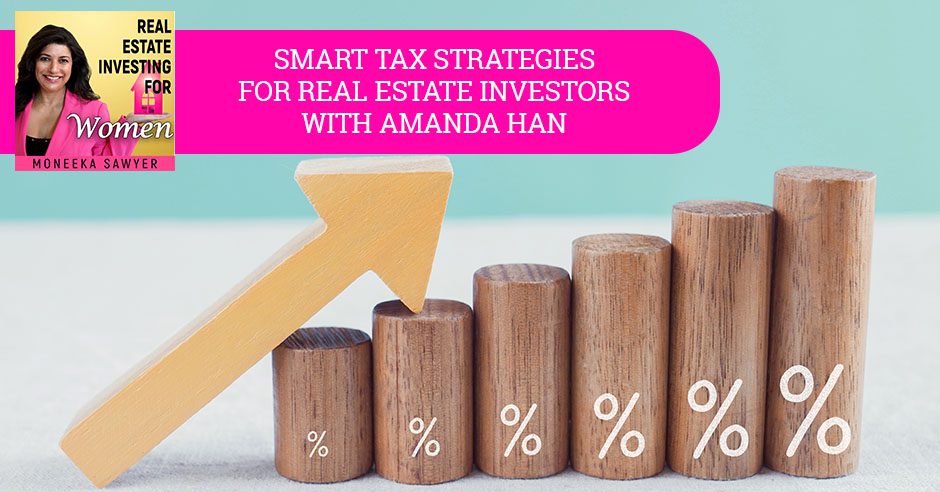
How can you recharge your wealth and scale your real estate business? Today’s guest has the smart tax strategies for you! Amanda Han has all the background she needs for real estate. Even though her family is pursuing businesses in the real estate industry, she decided to take the traditional route of studying, graduating, and landing a job. She became a CPA which helped her more in the real estate business, where she could focus on expenses and taxes. That knowledge led to successful real estate investments. In this episode, Amanda details what you could write off, especially for your taxes, to gain more savings instead of expenses.
—
Watch the episode here
Listen to the podcast here
Smart Tax Strategies for Real Estate Investors with Amanda Han – Real Estate Women
Real Estate Investing For Women
I am excited to welcome back to the show Amanda Han. Both a tax strategist and real estate investor, she helps investors with strategies designed to supercharge their wealth-building using entity structuring, self-directed IRA investing, and income offset opportunities to keep more of what they make. Amanda has a highly rated book, Tax Strategies For The Savvy Real Estate Investor, on Amazon and has been featured in prominent publications including Money Magazine, Talks at Google, CNBC’s Smart Money Talk Radio, as well as BiggerPockets podcast. Amanda, how are you?
I’m doing good. I’m excited to be back.
Thank you so much for offering to be on the show. You are always full of amazing information. I appreciate your time.
I’m excited to be back and talk about everything taxes.
You have been on the show once before, so everybody knows you. Why don’t you give us a high level of how you got into this story?
I am the third generation of real estate investors in my family. My grandparents first immigrated to the USA and invested in real estate. My parents also invested in real estate, although not full-time. My husband and I decided to invest in real estate after several years of working in a large firm in public accounting, where we helped real estate investors with their taxes. It wasn’t until I read Robert Kiyosaki’s Rich Dad Poor Dad book that I realized that’s something that I should do. My job at the time was to help real estate investors save taxes. For some reason, it never dawned on me that that was something I should be doing for myself until I read Robert’s book. That’s how we got started.
It’s fascinating because I’m a legacy investor also. My parents were immigrants and started investing in real estate. Think about that. All these immigrants are coming to the United States, and they have heard from someone else in the world that the way to build wealth in the United States is by real estate. They usually don’t have those opportunities in their own countries. They come here, buy real estate, build wealth, and do amazing things for their families, yet here in America, we’re sometimes a little bit complacent simply because we don’t know how valuable the opportunities are. We take them for granted.
It sounds like Amanda had the same experience as me like, “That was fine for you, but I don’t necessarily want to do that.” We don’t get the value of the opportunities that we have here. My dad was like, “You should get into real estate not as an agent but as an investor.” I was like, “I don’t want to do that. It’s too stressful.” It was funny that you had to get advice outside of your family.
In Robert’s book, he talks about rich dad and poor dad. Those are two different people for him. For me, it was the same because my parents and grandparents, although they did real estate, they always taught me the traditional route, which is, “Get good grades, get to a good college, get a good job.” When I got into one of the largest public accounting firms, it was like, “That’s it. I made it. I have already attained my life’s goal.” They didn’t talk to me or push me in the direction of being a real estate investor. I had to get that from someone else telling me that and then, “Maybe that’s what I should do.”
Investors are always really good about writing off things that are specific to their properties.
I had both from my parents too. They were like, “You have to go to school, get good grades, go to a good university, get a good job.” They also said, “You should be investing in real estate.” My dad had me managing some of his properties, which stressed me out so much as a kid. I was like, “I don’t want to be doing all this stuff,” but he was trying to help. We have that experience as immigrants. For our ladies who are reading this, know that these opportunities are amazing here in America. We don’t get those in other countries. I’m proud of you for tuning in to this show, but we need to take action. Taking advantage of those opportunities is the only thing that’s going to grow your life. I love that story.
When I was growing up, we lived close to my grandparents, and it was the same feeling as real estate. It wasn’t glorious to be a real estate investor. It was more of a hassle because we did our own work during tenant turnovers. I remember I was really young when my grandparents would take my cousin and me out to the properties. When people moved out, we would be there cleaning up and painting. It’s not like, “This is such a cool thing.” It’s something we didn’t want to do, but it’s different for investors now, you don’t have to be doing that stuff.
It’s not glamorous work. People meet me and they are like, “How did you do what you do?” They all think it’s glamorous. This is not glamorous. First of all, it’s the most intuitive thing on the planet. Buying a home and either living in it or letting someone else live in it is the most intuitive business. We all need housing. I do still manage my property. I’m not into painting but I’m hiring somebody. I’m still vetting out my people. It’s not glamorous. What is glamorous is the levels of money that I made and the wealth that I built working for a few hours. Even though I might be there 4, 5 or 10 hours during a turnover, what do I get for that?
I love this conversation because this is important for us to point out. Every job has its glamour factor and the grunge work that has to happen as a tax consultant. Amanda is this beautiful woman with a beautiful voice. She’s running this company. She’s wealthy. She invests in real estate. She’s very successful. There’s a level of glamour around that. She’s still the one that’s punching numbers. That is the non-glamorous piece. Everything that we do in the world is going to have like, “This is awesome,” and “This is the thing that we have to do to make it happen.” Keep that in mind as you think about all these things you would have to do in real estate. First of all, you don’t have to do all those things but no matter what you’re doing, you have to do both sides.

Tax Strategies: Getting into one of the largest public accounting firms is an attainment of a life’s goal.
You still wash dishes together, clean the floors, and wipe your babies’ butt when they poop. You do all of those things. There’s the beauty, glamor, romance, and the living life piece. That’s true for everything that we do. Sorry to belabor this but I feel like some ladies need to know it. They want to do the things that are cool but they don’t understand. Not just ladies, this is for everybody. As you are learning something new, you have to do those other things to make the glamorous end result you are looking for. It doesn’t have to be painful, unhappy or any of that, but it’s part of the course. You’re going to need to do things that don’t feel glamorous.
As it relates to the tax side of things, not for me as a CPA but just for investors, a lot of times, people who either hear me speak on a platform like this or read one of our books will say, “I love hearing the stories about how people saved $10,000 or $50,000 in taxes. I want to do that. Does it happen automatically? I read the book, and now I’m going to expect that to happen.” It doesn’t happen that way. The story is the glamour of this is what happened, but what you’re not seeing or paying attention to is what did that investor do during the year so that by next April, when they’re meeting with their tax person, they have everything in place so they can get the tax savings.
Let’s talk about investing and taxes. What can you write off as an investor? Give us some ideas.
When it comes to write-offs, the IRS sees investors as business owners. By business owners, I don’t mean you have to go out and get an LLC, a corporation or anything like that. I mean that you are in the business of investing in real estate. Whether you are a landlord who’s getting rental income, you are in the real estate business. If you are a flipper, wholesaler or even a realtor and you are making money in those activities, you are in the real estate business. You hear people talk about things when they say, “Business owners get all these incentives, loopholes and benefits,” but the vast majority of those write-offs are also available to us as real estate investors because we are business owners. Investors are always good about writing off things that are specific to their properties.
Let’s say you’re a landlord, most people don’t forget to write off their mortgage interest. There’s a lot of money they are paying into the bank, so they are not going to forget that or property taxes you paid to the county, maybe even paying your property manager to manage properties or repairs. People are usually pretty good about those expenses and not missing out on them. What I find that a lot of people miss out on is what we consider overhead expenses. These are expenses you are spending for your real estate business that are not necessarily specific to a property.
Maybe you bought a membership to be in a club or a group like a women’s group or something, or a tax book to learn how to invest in real estate and save taxes. You are driving your car for real estate purposes. Most of us probably use our cell phones, laptops, and all that for real estate. Even though these are things that are not specific to any property, they are for your real estate business as a whole. It’s important to make sure that as an investor, we are tracking and writing off those expenses. We’re all in agreement that tax rates are not going down. If anything, they will stay the same but possibly go up.
As those tax rates go up and you have $100 worth of expenses and save $20 or $30 in taxes, that’s pretty significant. $100 might not seem like a lot but if you are tracking all those throughout the year, then you are talking maybe a couple of thousand dollars or tens of thousands of dollars. That’s when the savings could be significant that you might save enough money for a down payment on another rental property next year.
I love that last piece where you said, “What if instead of paying taxes, we were buying another rental property?” Understand that Amanda and I are not advocating and doing anything that is not legal, but these are things that are legally accessible by us if we pay attention and prep a little bit. It’s never been positioned that way where you could take the money you are not paying in taxes, get a refund or however that shows up, and then turn it into another rental property and opportunity for cashflow.
Let’s say it was $10,000 we paid in taxes. We know what the return on investment is. It is $0.
We got nothing. We get the stuff that the government gives us but we don’t have it personally.
It’s not a surprise that, as real estate investors, we can save on taxes.
If you instead had $10,000 more to invest as a down payment, that could be $50,000 worth of real estate. That could be small property or at least a part of a property. If you do that year after year, they could supercharge how quickly we build our portfolio. A lot of real estate investors I meet oftentimes will say, “I want to get into real estate but I don’t have money to invest. How do we get bank financing? How do I get investors’ money? How do I partner with other people?” Although those are all great ideas and things we need to use as an investor, why not look in our own pockets first? It’s like, “This is the money I’m making. If I can keep more of my earnings, then I already have more money to invest. I don’t have to worry so much as to where am I going to find the money for my next deal.”
Especially for a down payment, you can use that money to invest in another deal. You could also use that money to do a partial or a down payment for several properties or one property in a nicer area. You can make different choices about the business you want to run.
People don’t look at it that way. They are like, “I don’t want to pay the IRS. I’m going to save money.” I have met people who are like, “I got a big refund, now I’m going to go on vacation with that. I’m going to buy something personal.” That’s not the goal. If you save the money and use it to invest in real estate, that new property will give you more write-offs for next year. It’s a compounding effect of saving and investing more so that you can save more and invest more.
Along the way, you are going to be enjoying that cashflow which would be supplementing, and you can partially reinvest that into your business. You deserved that vacation but it is a mindset switch. Amanda and I had the pleasure of meeting in San Diego. We had a boss lady weekend. I met with all these amazing women that are investors in real estate or some iteration. They do something around the real estate investor thing. It was funny because we all carried nice purses. I’m not a purse person, but we had our nice clothes or purses.
We all drive nice cars and have nice homes. Amanda talked about the tents that her kids built right in their cute bedrooms. We have got nice lives. We had met another woman and she was a friend of ours. She had bought a $50,000 ring. That’s certainly her right. If that’s what lights her up and she loves that, that’s awesome. All of us had the reaction of, “That’s another house.”
I love jewelry. My husband bought me another $6,000 ring for our 25th wedding anniversary, but that’s a house. It is a mindset of you should enjoy your life and have things that you love and make you happy, but understand that it’s balancing between our businesses and those things that we think are going to make us happy. We do need our vacations. I’m a choose-bliss person. A big part of bliss is about loving the journey and vacation is a big piece of that, but you should balance that. Use some of that money for investing. If it’s tax-saving money, that is business money. Business money should be reinvested. You can decide.

Tax Strategies: $100 dollars might not seem like a lot, but if you are tracking all those throughout the year, then you’re talking maybe a couple thousand dollars or tens of thousands of dollars.
It’s making that conscious decision and being honest with yourself in terms of what you are doing. Sometimes I’ll meet people who say, “I want to get into real estate investing. I hear all these great things about cashflow, appreciation, and tax savings.” By the next time I see them, they are like, “I was looking at real estate, and then I bought this nice big home for myself. I decide to upgrade. This is like an investment.” It’s being honest with yourself in that, “I didn’t end up buying an investment property. I ended up buying something nice for myself and my family.”
There’s nothing wrong with that, but understanding that the nice large home that you bought is not giving you cashflow. It’s not giving you an additional tax write-off because it’s not a business. It is by understanding the differences between every financial decision you are making, whether that’s more for personal enjoyment or true investment and growing your portfolio.
Do you need an LLC in order to save on taxes?
It piggybacks off of your first question, “What can you write off?” A lot of investors are under the assumption that in order to write-off anything, you have to have an LLC or you have to pay for it from your LLC. That’s not true at all. What I was saying is as real estate investors, we are business owners in the eyes of the IRS. The definition of business is not LLC, S corp, C corp or any of that. It’s whether you are investing in real estate. We have a lot of investors who are landlords who don’t have LLCs. For one reason or another, they choose the whole rentals in their own name, in the trust or something like that.
They can still write off all those same expenses we talked about, a car, home office, cellphone and travel. All those things are tax-deductible. It’s a common myth that people feel like, “I don’t have an LLC yet. Let me go ahead and form an LLC so I can take these deductions,” when more than 90% of the time, those normal expenses can be deducted regardless of whether you have an LLC or if you operate in your personal name. When it comes to taxes, we break it out into two different groups like if you have rental income. That will be rental from single-family, multifamily, commercial, all types of rental income versus the other bucket, which is more active income. Active income will be if you are a realtor, a wholesaler or a fix and flipper.
The reason we have those two different buckets is because taxes are treated differently for those two different types of income. For most landlords with rental income, it doesn’t matter from the tax side whether you have an LLC or not because you don’t pay self-employment taxes. You can write off the same things. For landlords, the reasons for having an LLC would not be for tax. It’s mostly for asset protection purposes. Your attorney might say, “You don’t want to lose all your assets because one of your tenants sue. Let’s put that in an LLC or a partnership to get the liability protection.”
On the other hand, for active income flipping wholesaling, you also have to pay self-employment taxes. Not only do you pay federal and state income taxes, but you are also paying into Social Security and Medicare. That’s another up to 15% tax. That’s where having an LLC or S corporation could help minimize those. It’s difficult to say if you should have an LLC or not, and that investment number two should have one. That’s all based on your unique situation. How much money do you make in real estate? How much other income do you have from a job or a business? That’s something that you want to plan out with your tax person.
For someone who has active income, let’s say you have $100,000 of taxable profit from flipping, wholesaling or as a realtor, if you run it through an S corporation or something similar, you might save up to $7,000 in taxes with the structuring. That’s where it typically makes sense to have an entity. In either situation, you can always write off the same things regardless of whether you have an entity or not.
I loved the clarity on the two different ways that work and how the IRS looks at that. What would you say are the biggest mistakes that real estate investors make when it comes to taxes?
There were quite a few of them. We are talking about entity structuring. There are two big mistakes on the entity structuring side. One is using entity structuring almost as an excuse to delay investing. This is more for newer investors because I do hear this quite a bit like, “I’m going to invest in something,” and then a couple of months later, they will tell me, “I have not invested yet. I could not decide on a name for my LLC.” That’s an excuse to say, “I didn’t do it because I don’t have an LLC yet.” One way to overcome that is to understand you don’t have to have an LLC to buy rental properties. Even if you bought a property now, you can always move the title into an LLC after the fact. We don’t have to worry about that. For a lot of the women investors, it is more of we have to find that perfect name like Blissful Real Estate, LLC.
People get caught up in all that instead of focusing on taking action and doing real estate. The other most common mistake on the entity side is forming the wrong type of entity. That’s one of those things that if you form the wrong entity to hold your real estate and don’t find out until way later that you were in the wrong entity, it becomes very costly to unwind that.
We have seen clients who had owned real estate inside of S corporations for 5 to 10 years. It’s very difficult for them to unwind it because now the property has appreciated. The only way to unwind it is to pay a lot of tax to get it out of the entity’s name into the correct entity. There’s a fine line between not waiting too long to form it, but then also forming it correctly from the start, so you don’t have such costly ways to unwind that structure.
That to me seems a little scary when you think about, “I have to unwind if I screw up.”
Sometimes, you can’t do it. There’s no real way to do it where you don’t have to have taxes. Entity formation is not like a do-it-yourself like, “I was on this podcast. I read this book,” and then you go ahead and do it. It’s something that you want to sit down with your tax advisor and talk through. Some of the questions to answer are not just, where am I buying a property? It’s also, how much is the equity in my property? What’s my exit strategy. Am I just selling it like flipping? Am I going to hold it for 5 or 10 years? What other income am I getting from this property? Is it a long-term rental or short-term? If it’s a larger property, am I also going to have vending machines or a washer and dryer? All these things help determine what type of entity you are going to hold your real estate in. By having that conversation upfront, it helps them minimize the risk of getting into the wrong type of legal entity, to begin with.
The other question we were going to talk about was can we buy rental properties in retirement? The answer is yes. Ladies, you have heard other people talking about self-directed and stuff like that. One of the things that I want to talk to Amanda about is, what are the logistics around that? We got a pretty good high level on the fact that it’s possible and what that looks like, but I asked Amanda to do a breakdown on what that looks like. Amanda, let’s do that in EXTRA.
I have a little different spin for the custodians when they talk about what you can and cannot do. My job is on the step before that, where the investors are figuring out, what type of account is best for you? How do we use that and invest in real estate, and how do we save taxes with the money going in? There are lots to share on that part.
We will do that on EXTRA. We’ll be talking about investing in real estate through retirement funds and from a tax perspective. Before we go into our three rapid-fire questions, let’s talk a little bit about some of the things that you are offering my audience. You do have a free eBook.
We have an eBook. It’s called Tax Strategies For Real Estate Investors. You can find it on our website at KeyStoneCPA.com. It goes a little bit more in-depth in terms of a lot of the things we talked about. We talked about maximizing write-offs and how to take a tax deduction by shifting income to your kids. If you have kids or elderly parents helping you in your business, how do you do that? We talked about entity structuring. In our book, we break down some of the questions and what you should be considering before you meet with your tax person, how to use legal entity structuring correctly, and a lot more stuff. Check it out on our website.
You also have a mini-course for real estate investors specifically. Could you tell us a little bit about that?
It’s an on-demand course for beginner investors. It’s delivered in the course of four days. You can get the content when you have time. We talked about the power of tax savings like how you use tax savings to supercharge your wealth building. We go over the top ten most common tax strategies for all types of real estate investors. We talk about the six-step process like, how do you have an effective tax plan?
Know the main things that you need from the property. If they meet your criteria, then go after it.
It’s not a surprise that as real estate investors, we can save on taxes, but the question is always, “How? What are the things I need to do so that I’m ready for next April?” We also have a risk assessment as part of our on-demand course. Those are a set of questions to help you try to figure out if you are overpaying in taxes. That’s a question we get a lot, “How do I know? Do you think I’m overpaying in taxes?” I don’t know because I don’t know the answers to some of these questions but hopefully, you will, by taking this assessment yourself.
All of that goodness is only $39. Go get that. It’s good stuff. You have to go to BlissfulInvestor.com/AmandaTax. I know that will be helpful. Amanda covers a lot of very good stuff for real estate investors, specifically because she is an investor herself, so she knows what we go through. Amanda, are you ready for three rapid-fire questions?
I think so.
Tell us one super tip on getting started investing in real estate.
I’m a numbers person. The way I look at it is to look at the numbers. If the numbers make sense, then pull the trigger. Don’t overthink it, don’t delay and don’t overanalyze it. Know the main things that you need from the property. If they meet my criteria, then go after it.
What is one strategy for being successful as a real estate investor?
We work with new and advanced investors. One thing that I see across some of my more advanced real estate investor clients is they treat real estate investing as a business. I don’t mean LLCs or set up an LLC. They run it like a business in terms of they have the right teams in place to do the things that they’re not good at. If they are not a good bookkeeper, they have a bookkeeper in place. If they are not good at managing real estate, they have property managers in place. It’s by running that as a business and creating systems around everything you do as you scale your real estate. You don’t have to recreate the wheel every time. Those are the things I see with most successful real estate investors.

Tax Strategies: Treat real estate investing as a business.
I have frequently said that systems equal bliss because they give you freedom. A big piece of being blissful is having the freedom to choose what you do with your time. Systems and teams are key to that. Tell us the personal practice that you do daily that contributes to your success.
It’s not a system. It’s more of a habit. My habit is I don’t have a to-do list. My thing is if I have something that I know I need to do that is important to me, I add it to my calendar directly so that time is blocked off. When the time comes, that’s when I do it. I try to organize and prioritize the things I have to do, but it’s not in the list format. It’s more like, “Get it on the calendar so that it’s done.” I’m a big proponent of that because before, I had a to-do list. They kept getting longer. It’s more to-dos and more to-dos until you don’t have time to look at the to-do list anymore.
Nobody has ever said it that way before. We thank you so much for all that you have offered on this portion of the show. It was awesome.
I’m excited to be here. I’m happy to come back anytime.
—
Ladies, we do have more on EXTRA. We are going to be talking from a tax perspective all about investing in real estate through your retirement funds. That’s going to be an interesting topic. If you are subscribed to EXTRA, stay tuned. If you are not but would like to be, this may be the time to do it. Go to RealEstateInvestingForWomenExtra.com, and you will get the first seven days for free. Thank you so much for joining Amanda and me for this portion of the show. I look forward to seeing you next time. Remember, goals without action are just dreams. Get out there, take action and create the life your heart deeply desires. I’ll see you soon.
Important Links
- Tax Strategies For The Savvy Real Estate Investor
- Tax Saving Strategies for Real Estate Investors with Amanda Han – Past Episode
- Rich Dad Poor Dad
- KeyStoneCPA.com
- RealEstateInvestingForWomenExtra.com
- [email protected]
- BlissfulInvestor.com/AmandaTax
About Amanda Han
 Amanda received her accounting degree from UNLV. As a CPA and real estate investor, Amanda has helped countless investors across the nation to supercharge their wealth building through proactive tax saving with her top-selling Amazon books as well as her teachings on prominent publications such as Money Magazine, Google Talks, and CNBC.
Amanda received her accounting degree from UNLV. As a CPA and real estate investor, Amanda has helped countless investors across the nation to supercharge their wealth building through proactive tax saving with her top-selling Amazon books as well as her teachings on prominent publications such as Money Magazine, Google Talks, and CNBC.
Amanda brings over two decades of tax planning and compliance experience from working in Big 4 Public Accounting as well as public and private companies. In her spare time, Amanda enjoys canvas painting, biking by the beach, and seeking out the best hole-in-the-wall dining options where ever she visits.
______________________________________
To listen to the EXTRA portion of this show go to RealEstateInvestingForWomenExtra.com
To see this program in video:
Search on Roku for Real Estate Investing 4 Women or go to this link: https://blissfulinvestor.com/biroku
On YouTube go to Real Estate Investing for Women
Moneeka Sawyer is often described as one of the most blissful people you will ever meet. She has been investing in Real Estate for over 20 years, so has been through all the different cycles of the market. Still, she has turned $10,000 into over $5,000,000, working only 5-10 hours per MONTH with very little stress.
While building her multi-million dollar business, she has traveled to over 55 countries, dances every single day, supports causes that are important to her, and spends lots of time with her husband of over 20 years.
She is the international best-selling author of the multiple award-winning books “Choose Bliss: The Power and Practice of Joy and Contentment” and “Real Estate Investing for Women: Expert Conversations to Increase Wealth and Happiness the Blissful Way.”
Moneeka has been featured on stages including Carnegie Hall and Nasdaq, radio, podcasts such as Achieve Your Goals with Hal Elrod, and TV stations including ABC, CBS, FOX, and the CW, impacting over 150 million people.
Syndication Series #4: Senior Living As An Real Estate Investment With Eng Taing
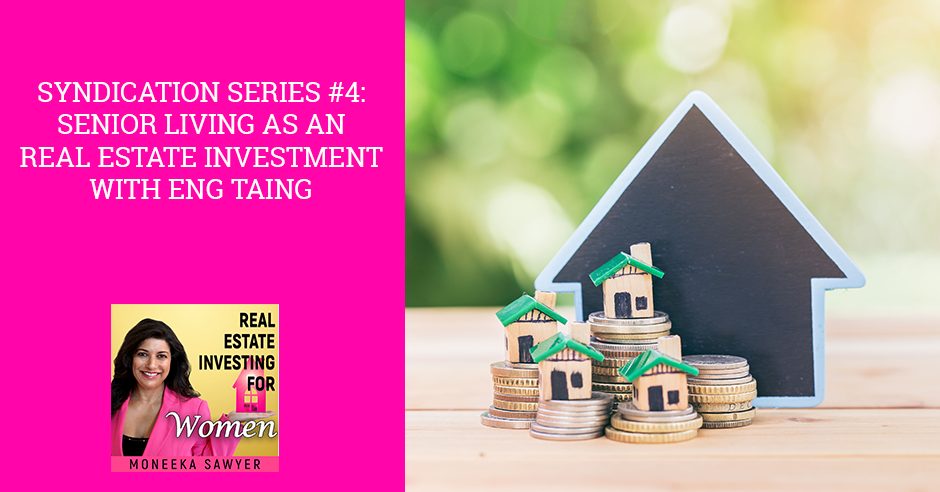
What real estate investments have growth opportunities nowadays? Eng Taing, born in a refugee camp in Thailand, where his family escaped the Khmer Rouge from Cambodia, immigrated to America. Despite not having much, he found a way to thrive for success. Blessed with being good at math, Eng understood data patterns in the real estate market. Now, he is focusing most of his time and money on senior living investments. So how did he end up investing in senior living? Find out by tuning in and learning more about this asset!
—
Watch the episode here
Listen to the podcast here
Syndication Series #4: Senior Living As An Real Estate Investment With Eng Taing
Real Estate Investing For Women
Welcome to the Syndication Series where you are going to learn all about what syndication is, and how you can utilize it to build cashflow and grow your wealth. It’s an exciting strategy and I’m looking forward to sharing all of our guests with you. Let’s get to the show.
—
I am so excited to welcome to the show, Eng Taing. He is the CEO and Founder of Touzi Capital, and a highly experienced real estate investor with $100 million of assets under management. Eng works hard to help people reach their full potential. He is an economist by training from the Wharton School of Business. He also has experience leading data science and analytics at Apple, Capital One and AT&T. He applies that experience when identifying and underwriting investment opportunities in markets. Eng has presented at companies like Apple, Facebook and Amazon, where he teaches employees how to minimize their tax burden and keep and invest more of their earnings so they can achieve financial freedom.
Touzi Capital is a real estate investment company focused on investing in Kansas City that believes that your money should work for you. It has been investing in commercial real estate for many years, and trusts that this is one of the best ways to predictably build wealth through passive income. Touzi Capital focuses on high cashflow investments and providing passive income to investors by acquiring and optimizing multifamily, industrial and senior living assets. In doing this, they want to make real estate investing accessible for the everyday investor through technology and a data-driven platform along with their dedicated team that puts you first. Eng, welcome to the show.
What a mouthful. I don’t even know who wrote that.
Talk to us a little bit about your real estate journey. You went to Wharton Business School and then you moved into real estate. Tell me how that worked out for you.
I would love to take a little step back to my formative years to highlight why I got into real estate and why it’s important for me. I was born in a refugee camp in Thailand. My parents are Cambodians and we escape the Khmer Rouge. There were lots of interesting stories of hiding in jungles and hiding from laws, out of hiding and keeping some pretty terrible stuff. It’s more of my parents’ story. I did grow up in LA and I grew up very poor. I grew up not having much, but I got very lucky to have been growing up in America. I have been fortunate enough to be good at Math and have a family that put a roof over my head, to not see what I didn’t have, and to have enough hunger to drive me to my biggest why.
Hopefully, a lot of your audience has a big why to help them provide security and financial freedom in whatever form that means to their family. That’s been my biggest driver. When I started to get good at Math, I gravitated towards investment banking because that’s the thing people did in my age group. Everybody said, “Let’s go do investment banking. This makes a bunch of money, be a stock trader,” or whatever it is. I did all that. I’m pretty good at Math and at understanding data patterns.
Having a predictable monthly income will make you feel relaxed.
What I found about myself is I did not like the volatility, the up and down, the movement and checking the market. I went through the financial crisis. I helped cause the financial crisis. I’m sorry. When you book $4 billion losses in subprime assets, that’s probably not a great idea. Seeing that side of things and seeing the value of these houses go down, that’s how I first got into my first real estate investments at the young age of 23.
I’m lucky enough to have the capital to deploy at the time. I remember it very clearly. It was a $125,000 investment to a $30,000 purchase price of investment to get $1,000 a month in net monthly income. I liked that feeling of having a monthly predictable income. Obviously, I’m hiding a few things like what I had to do with painting the house, remodeling, getting tenants, and tenant issues. In general, when you come from so little and have just a little bit of security, it gets you a lot of confidence. My story isn’t a story of getting into real estate and just doing real estate. My story is of someone who has always tried to do a lot of things. I had a side passion for real estate and now it’s the main passion of my full-time job or my business.
It’s always been a side hustle. For me and probably some of your audience, you work your 9:00 to 5:00 and you buy real estate. For me, having that passive income help me make better decisions. I was able to go to the Peace Corps when everyone went to MBA. I met my wife in the Peace Corps. I was able to take bolder career decisions of asking for more, of not having a fear-based life of financial insecurity and saying, “I can’t go for this job or make this counteroffer.”
That helped because I was buying real estate every year, and having that little base of support grow and grow. I knew that I didn’t need to have much to survive. Having that, on top of everything else I was doing, gave me more freedom of choice and urgency. It’s a long story of how all these formative things helped me get into real estate, as well as why I’m doing more real estate and why I love preaching to the choir about real estate and subsidiary tax advantage. I’ve heard a lot of people who invest in real estate and not pay taxes. I love talking about that as well.
I went out to lunch with my mother-in-law and I told her, “I’m not sure what’s going on with me but I am getting teary-eyed with everything that’s happening around me.” It’s not everything, but things touched me so deeply. I’m not sure what’s going on with that. Just hearing your story about being a refugee and running to Thailand first, and then escaping to the United States, it’s a very similar story of my parents who had to flee from Pakistan during the separation because they were Hindu. Basically, they only had their clothes on their back and they ran across the border. They had these big houses in Pakistan and India. They had 15 or 18 people living in one dirt-floor shack.
I know the story. I never had to live it. They came to the United States and then had me. When I hear these stories, you realize how insanely lucky we are here in the United States. What I wish is that people understood that luck and it did not deter them from their drive. How old were you when you moved to LA?
Three years old.

Senior Living: The growth of this aging population will need more care, such as better communities and better facilities to take care of them.
You probably don’t remember too much of that struggle. As little people, we still get the subconscious impact of that. Your parents brought you here and they had this drive. They wanted to create safety for you and you got to see that, then that helped you to build that drive. Sometimes, those of us that come from immigrant families have this huge advantage of understanding what it could be like if we were not here and we didn’t have this opportunity. That touched me so much and I wanted to say thank you so much for sharing that story.
You’re welcome. That was my purpose. I love to share my story. My story is my parent’s story. My story is a lot of people’s stories, of not just immigrants who are refugees but of people who don’t have much. I fundamentally believe that it’s a lot of mindsets. It’s having that mindset to be grateful for what you have and what you can have for your health and for all the stuff. I know my son grew up very spoiled. I’m trying to figure it out. I don’t know how to not spoil him. I want him to have fun too. I want to buy him all the toys, but I have pictures of me in his age chasing chickens in the camp. It’s a different journey.
You are right that mindset is everything. You got a mindset from your parents, and you’ve inherited and developed your own mindset. That mindset will then hopefully, will impact your children and the world around you. Everything that we do is done through the filters of our own eyes that are affected by our own minds. If you come from a filter of gratitude, everything that you see will be of gratitude, and living that life helps our children to understand it and see it.
Even with all that they went through, my parents were so grateful to be here. They were so grateful for their children and for their opportunities. That’s a big reason why I’m so grateful for everything too. I totally understand what you’re saying. That mindset piece is huge. I’m sure no matter how spoiled your little one is, he will get that from you too. He might be chasing chickens but he might be doing it in the park.
That’s what rich people in San Francisco didn’t know. They just buy a chicken coop. It’s a sign of affluence that I got chickens and fresh grown eggs.
It’s come full circle. It’s not just an immigrant mindset. I thank you for emphasizing that. There are a lot of people that come from a place where they are not very privileged, or they had very little, or they were in bad circumstances. Through the change of their mindset, drive, and being able to have a vision of what might be possible, they are able to overcome that and create a life of freedom and choice. I released my TEDx Talk, which is called Who Is The Boss Of You? It’s all about economic freedom to give you a choice. We’re on the same wavelength on that. Let’s talk about real estate specifically. Talk to me about your favorite investment class or asset class.
I’ve gravitated towards senior living as a great asset class. For those who don’t know, senior living has many varieties to it. You have nursing homes, independent living, adults 55-plus assisted living. I was fairly in the middle of assisted living where folks, elders, and our residents are the greatest generation and they’ve contributed so much to this country. They are 85-plus. I love to invest in places where you have strong fundamentals or an asset class with strong fundamentals. That means there will be a lot more old people in the future. That’s just the demographic shift that is a known quantity in America, the silver tsunami. The growth of this aging population will need more care, better communities and better facilities to take care of them.
Having just a little bit of security gets you a lot of confidence when you come from so little.
Why I love this asset class, and I’ll compare this to multifamily because I do have both, is it’s both business as well as real estate. It has many great intangible changes. You are renting. You have to have depreciation. You have leverage and all these things that real estate gives you. You also have a business that essentially, for us, is an all-inclusive resort where our rents are typically five times the amount that you would pay for a comparable apartment building. You have a $500 revenue, but you have three times the costs. That comes from making sure that you have three meals a day and all this stuff. It’s just by creating community. I love thinking about creating community and how we can give our seniors the best community as these are the retirement years. These are the years that they would stay probably for their entire lives.
What I like to compare it to multifamily is that typically three years is the average length of stay. Once you get somebody in, they’re staying for a while. Because we do private pay, not Medicaid or Medicare, we know exactly that they can afford these things three-ish years. Overall, they are income resistant. In a pandemic, you can lose your job or income and be unemployed. Our tenants are recession resilient as I would like to call it.
They have an income. They have the money ready. They put that out from the funds. They’re using this for the last remaining years of making sure they’re in a great place. I’ve gotten deep into senior living. The reason why I got into senior living is because I love cashflow. I invest with cashflow and I’ve been investing in California until it didn’t make sense. I’m a nimble and flexible person. I don’t want to just be, “This is what I’m doing. I will only do that. I’m never going to do anything else.”
While you will learn expertise in that thing, if the market shifts, if California gets more expensive, which it has because it gets more regulated and may control, which it has, and if multi-family becomes more expensive, which it has, then I can’t get the same kind of cashflow that I’m used to, and I’m spoiled. I like to surround myself with double-digit cashflow. I’ll invest in this as well. I will chase after good asset classes that there’s a good moat around. When I started, I bought something to invest in, I didn’t have any guidance on how to buy real estate. They didn’t have sites back then. I figured out what to buy and do the math myself. I was pretty good at Math. I can figure it out.
If more people can do what you’re doing, that means the return is not as good. It’s more competitive. What you want to do is get to more uncompetitive areas where you can create a moat of competitive advantage. Senior living has a huge moat. No one is going to go figure it out like, “I want to invest in senior living nowadays.” Hopefully after this show, maybe some of your audience will. It’s definitely a great moat. There are lots of people in the space, but not as many as they should be. There are lots of communities that are thriving even during COVID.
When I think about what I want to continue to do from investing overall is I love cashflow. I say cashflow risk appreciation, even though all my assets have appreciated. This is what happens to assets, especially when the government prints a lot of money. I liked cashflow because I can get that money now and then compound it or invest it in many different things. When you invest for appreciation, you’re like planting a tree, then it becomes a big tree, but then that’s very risky to only have one tree. When you’re investing for cashflow, I like to think of you are planting the tree and you got a forest. You can invest all the cash from it in many different things. Having double-digit cashflow, meaning if you put $100,000, you get $1,000 a month, gives you the freedom to do a lot of different things.

Senior Living: Figure out complicated things. Others won’t do it. So, it’s time to try it out.
That’s what gives you a lot of buffers because if you’re just investing for appreciation, I don’t want to say negative, but others have investments that can do both. That’s the money that you got to put into it every month. If you lose your job, you might not have that cashflow from that property to cover that debt. Cashflow investing for me is always a big buffer of safety. I’m always thinking of how conservative, how safe it can be, and how much money this investment can make so that it pays for itself and for all my other debts.
For senior living, I love the way that you talked about that. I talked a little bit about California as an appreciation market. Usually, you’re going to have negative cashflow, which now everybody is like, “Don’t do that.” It’s a bad word. When you have an appreciation market, you’re usually not going to have any cashflow. Sometimes you’ll break even, or if you hold for a while, maybe. There are different ways of investing in it. It is good to consider what are your goals and to pick a strategy accordingly. I love that you’re so clear on exactly what you want.
Talk to me a little bit about senior living homes. I’ve looked a little bit into it. I’m very curious about it. I’ve got a lot of elderly family members that have been in homes. I hear a lot about insurance issues, not insurance like medical insurance but insurance as in insuring the home. It is its own big thing that none of the other asset classes have. Have you found that to be a particularly big challenge? What do you think about that?
I think of it as an added cost that is baked into the revenue. Your NOI and op expenses are baked into it. It has three times the cost. You had licenses that you have to get. Oftentimes, a medical license but when you open anything you get a license of that nature. We’re building single-story communities where you typically have 80 to 90 people in the community.
We have many different layers of liability protection both from having insurance, which can be costly but it’s baked into the cost, to also a management company, which we either own or a third party. We would have the liability of all the HR because it’s a people business. It’s having people and taking care of people. You want that to live off your investment. You have three entities when you are investing in senior living versus when you have multifamily. You might just invest in your own name. You may have insurance. You could do an LLC but being in California, it’s $18,000 a year.
It is a little bit more complicated but once you get to know that business, you know how to handle those things.
I love complicated things. I love to figure it out and then maybe someone else will do it because it’s complicated. They might want to do it and there will be more for me. That’s great.
Senior living is a queried asset class.
There are two other questions I wanted to ask you. First of all, I do want to talk about opportunity zones and how they fit into this. I know that we’re going to talk more about that in EXTRA. We will get there. The other question is, do you invest in homes and take other people’s money to invest in them? For instance, if I wanted to invest in senior living but didn’t want to have to learn all that stuff, can I do it through you?
That’s exactly what we do. Thanks for bringing that up because I will say all these complicated things. One of the things you could do is at least know that at Touzi Capital, I’m here to provide you with an option to invest with us and participate in the same cashflow that I’ve been talking about and the same stuff without having to sign a loan, without having to get the insurance or having any liability because you’re not even on any of the paperwork and the corp liability business. We take care of everything. All the headaches of hiring people and all that stuff, we’re taking care of. We’re doing this at scale so that when you’re doing anything ten times, you get better at it. It’s something that I appreciate myself. We love to have anyone potentially because you’re investing and growing with us.
Thank you for that. Ladies, as you know, we will be asking him how to get in touch with him. That’s one of those things you might want to talk to him about. If you have an interest in senior living homes instead of learning the whole game, you can have a piece of your investment portfolio with him and make income passively. That’s a possibility too. Talk to me a little bit about opportunity zones. We’re going to do the deep dive in EXTRA about this, but give us a little high level because I know that several of your properties are in opportunity zones. Is that true?
Yeah. We’re developing two properties. One is Jacksonville. We’re breaking ground. I will be flying over for the ribbon-cutting ceremony. I love opportunity zones and what it represents, which is a new law that was passed during the Trump Tax Cuts. If you know the letter of the law or the tax code, you can reduce your taxable income, which means you can keep more of your earnings. If you work hard for your money, keep more of your money. Use all the things that the rich people and investor class use all day. This is a great opportunity because we have a lot of folks who have a lot of stocks. I come from Apple and they make a lot of money from stocks.
When you sell stocks, you have to pay capital gains. In fact, when you sell almost any asset, you have to pay capital gains. That capital gain is tax and for opportunity zones, it’s the first class of investment that you can essentially say, “I’m not going to pay that. Not now. I’ll pay that later.” Put that money into an opportunity zone. If you owed $100,000 of taxes on capital gains, don’t pay that. Pay that later. We defer taxes all the time. That’s a great strategy. That’s all real estate. That’s what people are most interested in. When you do 401(k), you want to defer taxes in the future. You defer taxes for six years, not too long, then you reduce it by 10%, and then you hold it for ten years. It’s quite a while for any real estate investment. All future capital gains get eliminated.
Compared to a non-opportunity investment, and I do have both, if given the same number of returns, let’s say, 12% each annual return, the opportunity zone will give you 50% more money at the end because you would have free money going in and free money going out. It’s like a Roth and 401(k). I can go into the details on that too but basically, don’t pay taxes if you can. There are ways to do that. Even if you’re a W-2 employee and working hard, there are many ways. If you’re investing in money, investing in opportunity zones, investing in places that the government is saying, “Invest in this place. You would get a great tax benefit.” These places sometimes are great places to build senior living communities.
You totally piqued my interest. I would like to do a deep dive on that in EXTRA, where you can talk a little bit more about how that actually works because you go to high-level as I asked. I want to know more about that and exactly how that works. Ladies, we’ll be talking about that in EXTRA. Definitely stay tuned for that. Before we go to our three rapid-fire questions, tell everybody how they can reach you.

Senior Living: Just get started. You will fail. You will learn. It’s all the same. It’s going to be a great journey.
They can reach me at our website TouziCapital.com and email me at [email protected]. I am always happy to talk about taxes, real estate investing, and financial freedom. It’s all the things I’m passionate about. I have YouTube videos and TikTok. I got viral and it’s a million views. What we love about this space compared to everything else I’ve been doing is I’ve done a lot of talking to people and seeing people on their journeys. I’ve learned so much by talking to people. If you’re trying to do anything, networking and relationship building is key to success.
Definitely, get in touch with him. He’s very generously offering some of his time, which not very many people do. Be respectful and kind. If you’re interested in this topic, give him a call or send an email. Eng, are you ready for our three rapid-fire questions?
Yes.
Give us one super tip on getting started investing in real estate.
I hate saying it depends, but what I always say is get started. Just do it. A lot of people always think. I think too much. I think all the time. Getting started is going to be the best way to learn. If you’re short of money, find somebody who has money. If you are short of time, find somebody who has time. Those two things, time and money, will allow you to get into real state. There are so many technologies nowadays. You can use Redfin, Zillow or all these great applications that I didn’t have when I started. That will help you to get into it. Just get started. You will fail. You will learn. It’s all the same, and it’s going to be a great journey.
Tell us one strategy for being successful in real estate.
The big strategy that I’ve come to is to value your time. If you value your time, then you can create processes or decisions that are going to keep you down in the weeds or quagmire of figuring out how to evict somebody or do this or that. While you have to do that in the beginning, if you’re trying to be successful, that means you will try and do this a lot. You’re not just going to try this once. If you get lucky, you’ll try this ten times. Think about what you would want to do 5 to 10 times over and figure out how to scale. That’s why for me, it’s always been about going up, scaling, and knowing that a multimillion-dollar loan is easier than a $100,000 loan. I just need the income for it. I just need to have the experience. Scaling and thinking about how to do things multiple times is always a great strategy to be successful.
You work hard for your money. Keep more money.
Scaling and systems conserve your time. What is one daily practice that contributes to your personal success?
I do fasting. I’m an intimate faster. That’s a little bit of me back in time and not eating breakfast. I used to eat a lot when I was working at a corporate job. I loved having lunches but what I found is there are some great health benefits of fasting for me, not for everybody. For me, it’s giving me a little focus during the day to have a black cup of coffee, and then get into my routine. That has helped me focus on the task at hand every day.
This has been fabulous so far. Thank you so much for joining us for this portion of the show.
Thanks for having me.
Ladies, we got more. We’re going to be talking about opportunity zones and how they can save you in taxes, capital gains and all that cool stuff. I’m super excited about that. Stay tuned for EXTRA if you are subscribed. If you are not but would like to be, go to RealEstateInvestingForWomenExtra.com. You get the first seven days for free. You can download this one and whatever ones you want to read and check it out. For those of you that are leaving us now, thank you for joining Eng and me for this portion of the show. I look forward to seeing you next time. Until then, remember goals without action are just dreams. Get out there, take action, and create the life your heart deeply desires. I’ll see you soon. Bye.
Important Links
- Touzi Capital
- Who Is The Boss Of You? – TED Talk
- [email protected]
- YouTube – Touzi Capital
- RealEstateInvestingForWomenExtra.com
About Eng Taing
 Eng is an experienced private fund manager with $100M assets under management. He has 12 years of private market and real estate investing experience and has focused on cash flow investing to create significant passive income. Eng is an economist by training, from the Wharton School of Business. He also has experience leading data science and analytics at Apple, Capital One and AT&T. He applies that experience when identifying and underwriting investment opportunities and markets.
Eng is an experienced private fund manager with $100M assets under management. He has 12 years of private market and real estate investing experience and has focused on cash flow investing to create significant passive income. Eng is an economist by training, from the Wharton School of Business. He also has experience leading data science and analytics at Apple, Capital One and AT&T. He applies that experience when identifying and underwriting investment opportunities and markets.
Eng is the classic immigrant story that can only happen in America. He was born in refugee camp in Thailand, where his family escaped the Khmer Rogue from Cambodia. Having grown up in Los Angeles, he pursued economics by day trading and playing Poker to pay for his tuition while attending the University of Pennsylvania. There he trained as an economist and afterwards went into Investment banking. Later he would leave the financial world to join the Peace Corps, volunteering in the Republic of Georgia–a year after the Russian invasion. There he met his wife–Jennie, who was also volunteering abroad. They now have one son, with another on the way.
Eng has presented at companies like Apple, Facebook, & Amazon where he teaches employees how to minimize their tax burden and keep and investing more of their earnings so that they can achieve financial freedom.
Love the show? Subscribe, rate, review, and share!
______________________________________
To listen to the EXTRA portion of this show go to RealEstateInvestingForWomenExtra.com
To see this program in video:
Search on Roku for Real Estate Investing 4 Women or go to this link: https://blissfulinvestor.com/biroku
On YouTube go to Real Estate Investing for Women
Moneeka Sawyer is often described as one of the most blissful people you will ever meet. She has been investing in Real Estate for over 20 years, so has been through all the different cycles of the market. Still, she has turned $10,000 into over $5,000,000, working only 5-10 hours per MONTH with very little stress.
While building her multi-million dollar business, she has traveled to over 55 countries, dances every single day, supports causes that are important to her, and spends lots of time with her husband of over 20 years.
She is the international best-selling author of the multiple award-winning books “Choose Bliss: The Power and Practice of Joy and Contentment” and “Real Estate Investing for Women: Expert Conversations to Increase Wealth and Happiness the Blissful Way.”
Moneeka has been featured on stages including Carnegie Hall and Nasdaq, radio, podcasts such as Achieve Your Goals with Hal Elrod, and TV stations including ABC, CBS, FOX, and the CW, impacting over 150 million people.





